Embroidered Garments: Priests and Gender in Biblical Israel
Published: Oct 2009
£45.00
This collection of essays, the proceedings of an international conference held at King's College London in 2008, explores issues in the construction of gender that appear in the Hebrew Bible both in relation to priesthood itself and in literature with a priestly world-view (the P source, Chronicles, Ezra —Nehemiah, Ezekiel). Topics covered include female religious functionaries and their absence from the Hebrew Bible, masculinity and femininity as seen through the lens of priestly purity legislation, priestly genealogies as an expression of Jacques Derrida's 'archive fever', the definition of masculinity that is evidenced by priests' clothing, and the marginalization of women in priestly ideologies of nationality and kinship.
This is the second volume in the sub-series King's College London Studies in the Bible and Gender. The first was A Question of Sex: Gender and Difference in the Hebrew Bible and Beyond (2007).
Embroidered Garments: Priests and Gender in Biblical Israel
£45.00
This collection of essays, the proceedings of an international conference held at King's College London in 2008, explores issues in the construction of gender that appear in the Hebrew Bible both in relation to priesthood itself and in literature with a priestly world-view (the P source, Chronicles, Ezra —Nehemiah, Ezekiel). Topics covered include female religious functionaries and their absence from the Hebrew Bible, masculinity and femininity as seen through the lens of priestly purity legislation, priestly genealogies as an expression of Jacques Derrida's 'archive fever', the definition of masculinity that is evidenced by priests' clothing, and the marginalization of women in priestly ideologies of nationality and kinship.
This is the second volume in the sub-series King's College London Studies in the Bible and Gender. The first was A Question of Sex: Gender and Difference in the Hebrew Bible and Beyond (2007).
Five Stones and a Sling: Memoirs of a Biblical Scholar
Published: Oct 2009
£14.95
Michael Goulder is a scholar who has always taken an original approach to the Bible and biblical criticism. He has developed five major theories, which challenged received opinion among the learned; and the book tells the story of how these 'stones' fared when confronting the biblical establishment. He wryly admits that his slinging has been rather less successful than David's against Goliath.
Among his five theories a special place must be given to his demonstration of how much of the teaching ascribed to Jesus actually derived from the evangelists —the Lord's Prayer for example being composed by Matthew out of Jesus' prayers in Gethsemane. The parables too are the composition of the evangelists, Matthew characteristically writing of kings and rich merchants, while Luke speaks of women, stewards, a beggar and a Samaritan. A long-rooted error Michael Goulder has valiantly opposed has been the belief that Matthew and Luke were both dependent on a lost source, Q; in fact, he argues, Luke was familiar with Matthew's Gospel and copied or developed its teaching as he thought best.
Goulder has worked at the Old Testament as well as the New. He concludes that the Psalms were not the individual prayers of pious Israelites, as Gunkel and others supposed, but the compositions of kings or their poets, deploring national disasters and praying for blessing at the great autumn festival.
This account of Goulder's scholarly work is fascinatingly interwoven with that of his life and ministry; and there are many anecdotes and vignettes of other people that are both amusing and interesting. He was ordained a priest in the Anglican Church, and though he resigned his Orders in 1981, he never lost his love of the Bible.
Five Stones and a Sling: Memoirs of a Biblical Scholar
£14.95
Michael Goulder is a scholar who has always taken an original approach to the Bible and biblical criticism. He has developed five major theories, which challenged received opinion among the learned; and the book tells the story of how these 'stones' fared when confronting the biblical establishment. He wryly admits that his slinging has been rather less successful than David's against Goliath.
Among his five theories a special place must be given to his demonstration of how much of the teaching ascribed to Jesus actually derived from the evangelists —the Lord's Prayer for example being composed by Matthew out of Jesus' prayers in Gethsemane. The parables too are the composition of the evangelists, Matthew characteristically writing of kings and rich merchants, while Luke speaks of women, stewards, a beggar and a Samaritan. A long-rooted error Michael Goulder has valiantly opposed has been the belief that Matthew and Luke were both dependent on a lost source, Q; in fact, he argues, Luke was familiar with Matthew's Gospel and copied or developed its teaching as he thought best.
Goulder has worked at the Old Testament as well as the New. He concludes that the Psalms were not the individual prayers of pious Israelites, as Gunkel and others supposed, but the compositions of kings or their poets, deploring national disasters and praying for blessing at the great autumn festival.
This account of Goulder's scholarly work is fascinatingly interwoven with that of his life and ministry; and there are many anecdotes and vignettes of other people that are both amusing and interesting. He was ordained a priest in the Anglican Church, and though he resigned his Orders in 1981, he never lost his love of the Bible.
1 Samuel: A Narrative Commentary
Published: Oct 2009
Price range: £18.50 through £45.00
This substantial commentary presents 1 Samuel as a sophisticated work of literature, where the reader is challenged with a narrative that is fraught with interpretative possibilities. In his distinctive literary reading Bodner lays special emphasis on the intriguing array of characters that populate the narrative, and on the plot, in its design and its configurations.
Thus, a host of intriguing episodes and personalities are passed in review: from the symbolically charged closed womb of Hannah to the backwards fall and the broken neck of Eli, to the strange tour of the Ark of God through the menacing Philistine pentapolis, wreaking havoc. Then there is the complex portrayal of Samuel the prophet, the emergence of the fugitive David as a leader, and the eventual decline, madness, and necromancy of King Saul.
Only through a literary study of its many ironies and ambiguities, Bodner amply shows, can the richness of this classic royal drama be fully appreciated.
1 Samuel: A Narrative Commentary
Price range: £18.50 through £45.00
This substantial commentary presents 1 Samuel as a sophisticated work of literature, where the reader is challenged with a narrative that is fraught with interpretative possibilities. In his distinctive literary reading Bodner lays special emphasis on the intriguing array of characters that populate the narrative, and on the plot, in its design and its configurations.
Thus, a host of intriguing episodes and personalities are passed in review: from the symbolically charged closed womb of Hannah to the backwards fall and the broken neck of Eli, to the strange tour of the Ark of God through the menacing Philistine pentapolis, wreaking havoc. Then there is the complex portrayal of Samuel the prophet, the emergence of the fugitive David as a leader, and the eventual decline, madness, and necromancy of King Saul.
Only through a literary study of its many ironies and ambiguities, Bodner amply shows, can the richness of this classic royal drama be fully appreciated.
Decolonizing God: The Bible in the Tides of Empire
Published: Oct 2009
Price range: £17.50 through £39.50
For centuries, the Bible has been used by colonial powers to undergird their imperial designs--an ironic situation when so much of the Bible was conceived by way of resistance to empires. In this thoughtful book, Mark Brett draws upon his experience of the colonial heritage in Australia to identify a remarkable range of areas where God needs to be decolonized--freed from the bonds of the colonial.
Writing in a context where landmark legal cases have ruled that Indigenous (Aboriginal) rights have been 'washed away by the tide of history', Brett re-examines land rights in the biblical traditions, Deuteronomy's genocidal imagination, and other key topics in both the Hebrew Bible and the New Testament where the effects of colonialism can be traced. Drawing out the implications for theology and ethics, this book provides a comprehensive new proposal for addressing the legacies of colonialism.
Decolonizing God: The Bible in the Tides of Empire
Price range: £17.50 through £39.50
For centuries, the Bible has been used by colonial powers to undergird their imperial designs--an ironic situation when so much of the Bible was conceived by way of resistance to empires. In this thoughtful book, Mark Brett draws upon his experience of the colonial heritage in Australia to identify a remarkable range of areas where God needs to be decolonized--freed from the bonds of the colonial.
Writing in a context where landmark legal cases have ruled that Indigenous (Aboriginal) rights have been 'washed away by the tide of history', Brett re-examines land rights in the biblical traditions, Deuteronomy's genocidal imagination, and other key topics in both the Hebrew Bible and the New Testament where the effects of colonialism can be traced. Drawing out the implications for theology and ethics, this book provides a comprehensive new proposal for addressing the legacies of colonialism.
The Linguist as Pedagogue: Trends in the Teaching and Linguistic Analysis of the Greek New Testament
Published: Oct 2009
£50.00
This volume of important essays from recent Society of Biblical Literature annual meetings covers two related and vital topics-linguistic pedagogy and linguistic analysis. The essays on pedagogy discuss current trends and perspectives on how to approach the teaching of a dead language in the vibrancy of the electronic age. Experienced teacher-scholars give insights into how they draw upon linguistic theory and marshal technology to help reinforce pedagogical technique.
A second set of essays is concerned with the linguistic issue of 'prominence', asking, How are texts able to show that certain portions are more important than others? The essays, both theoretical and practical, grapple with the linguistic equivalent of underlining, to show how prominence helps authors make their point. The book of Hebrews, where identifying major themes and ideas have proved problematic, is offered as an extended example.
The volume is rounded off with a collection of papers applying the insights of modern linguistics, and particularly sociolinguistics and discourse analysis, to reading the New Testament in new and provocative ways that transcend traditional exegesis.
The Linguist as Pedagogue: Trends in the Teaching and Linguistic Analysis of the Greek New Testament
£50.00
This volume of important essays from recent Society of Biblical Literature annual meetings covers two related and vital topics-linguistic pedagogy and linguistic analysis. The essays on pedagogy discuss current trends and perspectives on how to approach the teaching of a dead language in the vibrancy of the electronic age. Experienced teacher-scholars give insights into how they draw upon linguistic theory and marshal technology to help reinforce pedagogical technique.
A second set of essays is concerned with the linguistic issue of 'prominence', asking, How are texts able to show that certain portions are more important than others? The essays, both theoretical and practical, grapple with the linguistic equivalent of underlining, to show how prominence helps authors make their point. The book of Hebrews, where identifying major themes and ideas have proved problematic, is offered as an extended example.
The volume is rounded off with a collection of papers applying the insights of modern linguistics, and particularly sociolinguistics and discourse analysis, to reading the New Testament in new and provocative ways that transcend traditional exegesis.
Postcolonial Interventions: Essays in Honor of R.S. Sugirtharajah
Published: Aug 2009
£60.00
This collection of essays, with contributions by many long-term colleagues and collaborators of R. S. Sugirtharajah, Professor of Biblical Hermeneutics in the University of Birmingham, is meant to review, evaluate, celebrate, and honour his many scholarly contributions. The title of the collection signifies that the volume focusses not only on how we read socio-political interventions, but also on how reading can itself be a form of intervention. This focus on reading and intervention is in many ways most fitting, as Professor Sugirtharajah's biblical and theological hermeneutics have indeed been a significant force of intervention. His work has confronted and challenged many to see beyond a parochial mainstream, to perceive imperial and colonial dynamics in the Bible and in biblical studies, and to remain open to the transformative possibilities of reading from new sites as well as with new sights.
Postcolonial Interventions: Essays in Honor of R.S. Sugirtharajah
£60.00
This collection of essays, with contributions by many long-term colleagues and collaborators of R. S. Sugirtharajah, Professor of Biblical Hermeneutics in the University of Birmingham, is meant to review, evaluate, celebrate, and honour his many scholarly contributions. The title of the collection signifies that the volume focusses not only on how we read socio-political interventions, but also on how reading can itself be a form of intervention. This focus on reading and intervention is in many ways most fitting, as Professor Sugirtharajah's biblical and theological hermeneutics have indeed been a significant force of intervention. His work has confronted and challenged many to see beyond a parochial mainstream, to perceive imperial and colonial dynamics in the Bible and in biblical studies, and to remain open to the transformative possibilities of reading from new sites as well as with new sights.
The Dan Debate: The Tel Dan Inscription in Recent Research
Published: Aug 2009
£45.00
The Tel Dan inscription was found in three fragments on Tel Dan in northern Israel in 1993 and 1994. It is one of the most controversial textual archaeological finds since the discovery of the Dead Sea Scrolls. Most scholars agree that the text, which is written in Old Aramaic, is to be dated to the late ninth century BCE. It refers to a war between the Aramaeans and the northern kingdom of Israel. The text is apparently represented as authored by King Hazael of Damascus, and many scholars have discerned the names of the kings Jehoram and Ahaziah of Israel and Judah in the fragmented text.
There has been an extremely lively, and even heated, debate over both its language and its content, and it is time that a full survey of the debate should be undertaken. In his previous book, The Tel Dan Inscription: A Critical Investigation of Recent Research on its Palaeography and Philology (2006)--now distributed by Sheffield Phoenix Press--Hallvard Hagelia has examined those more technical aspects of the debate. In the present corollary volume, The Dan Debate: The Tel Dan Inscription in Recent Research, Hagelia analyses the debate on all the other more general aspects of the inscription. His own view is to support the joining of the fragments as it is done by the editors, Biran and Naveh, and to translate the controversial term bytdwd as 'House of David'.
The debate on the Tel Dan is interesting and significant in itself, but it can also be viewed as a case study of the wider debate between the so-called 'minimalists' and 'maximalists' in Hebrew Bible scholarship. In particular Hagelia's two books offer an notable exchange of views with George Athas's The Tel Dan Inscription: A Reappraisal and a New Interpretation (2003).
The Dan Debate: The Tel Dan Inscription in Recent Research
£45.00
The Tel Dan inscription was found in three fragments on Tel Dan in northern Israel in 1993 and 1994. It is one of the most controversial textual archaeological finds since the discovery of the Dead Sea Scrolls. Most scholars agree that the text, which is written in Old Aramaic, is to be dated to the late ninth century BCE. It refers to a war between the Aramaeans and the northern kingdom of Israel. The text is apparently represented as authored by King Hazael of Damascus, and many scholars have discerned the names of the kings Jehoram and Ahaziah of Israel and Judah in the fragmented text.
There has been an extremely lively, and even heated, debate over both its language and its content, and it is time that a full survey of the debate should be undertaken. In his previous book, The Tel Dan Inscription: A Critical Investigation of Recent Research on its Palaeography and Philology (2006)--now distributed by Sheffield Phoenix Press--Hallvard Hagelia has examined those more technical aspects of the debate. In the present corollary volume, The Dan Debate: The Tel Dan Inscription in Recent Research, Hagelia analyses the debate on all the other more general aspects of the inscription. His own view is to support the joining of the fragments as it is done by the editors, Biran and Naveh, and to translate the controversial term bytdwd as 'House of David'.
The debate on the Tel Dan is interesting and significant in itself, but it can also be viewed as a case study of the wider debate between the so-called 'minimalists' and 'maximalists' in Hebrew Bible scholarship. In particular Hagelia's two books offer an notable exchange of views with George Athas's The Tel Dan Inscription: A Reappraisal and a New Interpretation (2003).
Women in the Pentateuch: A Feminist and Source-Critical Analysis
Published: Aug 2009
£50.00
For the first time, literary source criticism and feminist biblical interpretation are here brought together systematically. Taking into account recent trends in Pentateuchal source criticism, Shectman divides the narrative into priestly and non-priestly threads, tracing the portrayal of women in each. In both sources, as Moses comes to the fore, women recede increasingly into the background, with the result that far fewer women appear in Exodus —Numbers than appear in Genesis.
A stark contrast between the sources also emerges from this study: non-P contains many more fully developed narrative traditions focused on women, particularly those involving childbirth, pointing to an original genre of narratives unique to biblical women. However, with the combination of traditions in the Pentateuch, these traditions are absorbed into the patriarchal ones, culminating in Genesis 17, P's programmatic statement of the promise and covenant. P significantly limits the roles of women that were preserved in non-P. This difference between the sources is primarily the result of increased centralization: whereas the non-P material reflects a period before centralization had become entrenched, in P, centralization has taken hold, with the result that women's roles are more limited.
In addition to a new and detailed source-critical analysis of women in the Pentateuch, this book also provides a detailed overview of feminist biblical criticism, from the work of Elizabeth Cady Stanton up to the present, which will be useful for those interested in the history of biblical, particularly feminist, interpretation.
Women in the Pentateuch: A Feminist and Source-Critical Analysis
£50.00
For the first time, literary source criticism and feminist biblical interpretation are here brought together systematically. Taking into account recent trends in Pentateuchal source criticism, Shectman divides the narrative into priestly and non-priestly threads, tracing the portrayal of women in each. In both sources, as Moses comes to the fore, women recede increasingly into the background, with the result that far fewer women appear in Exodus —Numbers than appear in Genesis.
A stark contrast between the sources also emerges from this study: non-P contains many more fully developed narrative traditions focused on women, particularly those involving childbirth, pointing to an original genre of narratives unique to biblical women. However, with the combination of traditions in the Pentateuch, these traditions are absorbed into the patriarchal ones, culminating in Genesis 17, P's programmatic statement of the promise and covenant. P significantly limits the roles of women that were preserved in non-P. This difference between the sources is primarily the result of increased centralization: whereas the non-P material reflects a period before centralization had become entrenched, in P, centralization has taken hold, with the result that women's roles are more limited.
In addition to a new and detailed source-critical analysis of women in the Pentateuch, this book also provides a detailed overview of feminist biblical criticism, from the work of Elizabeth Cady Stanton up to the present, which will be useful for those interested in the history of biblical, particularly feminist, interpretation.
Nahum, Second Edition
Published: July 2009
Price range: £15.00 through £35.00
In its wanton celebration of violence, the book of Nahum poses ethical challenges to the modern reader. O'Brien offers the first full-scale engagement with this dimension of the book, exploring the ways in which the artfulness of its poetry serves the book's violent ideology, highlighting how its rhetoric attempts to render the Other fit for annihilation.
She then reads from feminist, intertextual and deconstructionist angles and uncovers the destabilizing function of the book's aesthetics.
Finally, she demonstrates how mining Nahum's ambiguities and tensions can contribute to an ethical response to its violence.
This is a reprint of the 2002 edition.
Nahum, Second Edition
Price range: £15.00 through £35.00
In its wanton celebration of violence, the book of Nahum poses ethical challenges to the modern reader. O'Brien offers the first full-scale engagement with this dimension of the book, exploring the ways in which the artfulness of its poetry serves the book's violent ideology, highlighting how its rhetoric attempts to render the Other fit for annihilation.
She then reads from feminist, intertextual and deconstructionist angles and uncovers the destabilizing function of the book's aesthetics.
Finally, she demonstrates how mining Nahum's ambiguities and tensions can contribute to an ethical response to its violence.
This is a reprint of the 2002 edition.
On Earth as it is in Heaven: Temple Symbolism in the New Testament
Published: Jun 2009
£12.50
As more and more is being discovered about the beginnings of Christianity, a whole new understanding of the context of Christian origins is emerging. Any serious student now needs a knowledge of the traditions of the temple. This book, a supplement to Margaret Barker's The Gate of Heaven: The History and Symbolism of the Temple in Jerusalem, breaks further new ground, showing how the symbols and rituals of the temple shaped the lives of the early Christians, and illustrates the striking relevance of temple theology to the New Testament.
The influence of the temple cult has to be reconstructed by drawing on the increasing number of non-biblical texts now available. These include those written in the early churches; fragments from among the Dead Sea Scrolls; and Jewish texts written in the early Christian period. Piece by piece the world of the temple is emerging from this material. Through this close study of the Pseudepigrapha and other non-canonical writings, Margaret Barker examines four symbols of temple theology: Light, Life, Blood, and the Robes of Glory. She shows how details missing from the Old Testament descriptions can be recovered from other ancient texts to throw new light upon many significant passages of the Bible.
This is a reprint of the volume published by T. & T. Clark in 1995.
On Earth as it is in Heaven: Temple Symbolism in the New Testament
£12.50
As more and more is being discovered about the beginnings of Christianity, a whole new understanding of the context of Christian origins is emerging. Any serious student now needs a knowledge of the traditions of the temple. This book, a supplement to Margaret Barker's The Gate of Heaven: The History and Symbolism of the Temple in Jerusalem, breaks further new ground, showing how the symbols and rituals of the temple shaped the lives of the early Christians, and illustrates the striking relevance of temple theology to the New Testament.
The influence of the temple cult has to be reconstructed by drawing on the increasing number of non-biblical texts now available. These include those written in the early churches; fragments from among the Dead Sea Scrolls; and Jewish texts written in the early Christian period. Piece by piece the world of the temple is emerging from this material. Through this close study of the Pseudepigrapha and other non-canonical writings, Margaret Barker examines four symbols of temple theology: Light, Life, Blood, and the Robes of Glory. She shows how details missing from the Old Testament descriptions can be recovered from other ancient texts to throw new light upon many significant passages of the Bible.
This is a reprint of the volume published by T. & T. Clark in 1995.
Psalms
Published: May 2009
Price range: £15.00 through £35.00
The Book of Psalms is often seen as an anthology of prayers and hymns from which the reader may extract a selection as need or interest dictates. However, a recent development in Psalms scholarship has been a discussion of whether the collection of psalms has some overall structure. Is the whole of the Book of Psalms greater than the sum of its individual parts? This commentary argues that it is and presents a continuous reading of the Book of Psalms.
Moreover, the long-standing tradition, found within both Judaism and Christianity, of associating the psalms with David is used as a reading strategy. In this volume, the Psalms are presented sequentially. Each has its place in the collection but thirty-five are treated at greater length. They are read, at least in the first two books (Psalms 1 —72), as if they were David's words. Beyond that a more complex and developed association between David and the Psalms is demanded. David becomes a figure of hope for a different future and a new royal reign reflecting the reign of Yahweh. Throughout, David remains a model of piety for all who seek to communicate with God in prayer. It is in the light of this that later disasters in the life of Israel, especially the Babylonian Exile, can be faced. In the Book of Psalms, the past, in terms of both David's life and the history of Israel, is the key to future well-being and faithfulness.
Psalms
Price range: £15.00 through £35.00
The Book of Psalms is often seen as an anthology of prayers and hymns from which the reader may extract a selection as need or interest dictates. However, a recent development in Psalms scholarship has been a discussion of whether the collection of psalms has some overall structure. Is the whole of the Book of Psalms greater than the sum of its individual parts? This commentary argues that it is and presents a continuous reading of the Book of Psalms.
Moreover, the long-standing tradition, found within both Judaism and Christianity, of associating the psalms with David is used as a reading strategy. In this volume, the Psalms are presented sequentially. Each has its place in the collection but thirty-five are treated at greater length. They are read, at least in the first two books (Psalms 1 —72), as if they were David's words. Beyond that a more complex and developed association between David and the Psalms is demanded. David becomes a figure of hope for a different future and a new royal reign reflecting the reign of Yahweh. Throughout, David remains a model of piety for all who seek to communicate with God in prayer. It is in the light of this that later disasters in the life of Israel, especially the Babylonian Exile, can be faced. In the Book of Psalms, the past, in terms of both David's life and the history of Israel, is the key to future well-being and faithfulness.
Jesus’ Twofold Teaching about the Kingdom of God
Published: May 2009
£50.00
Recent research on Jesus' teaching about the Kingdom of God has in common the assumption that it remains the same throughout the time of his proclamation of it. The data that cannot be harmonized are usually judged to be inauthentic, originating from Christian prophets in the early church.
Smith shows in closely argued detail how essential it is to differentiate two historical contexts for Jesus' teaching about the Kingdom of God. The nature of the Kingdom of God is conditional upon its acceptance and the acceptance of its messenger —which is to say, Jesus' teaching about the Kingdom of God is hypothetical. This is the non-rejection context of Jesus' teaching about the Kingdom of God.
But some of Jesus' teaching about the Kingdom of God presupposes a context of the rejection of his message by the majority of Jews and especially the Jewish authorities. In this new context, Jesus teaches that the Kingdom will still come but not in the way first delineated, in the non-rejection context. This can be called the rejection context of Jesus' teaching about the Kingdom of God.
No attempt should be made to assimilate all the data into one historical context. Distinguishing two contexts for Jesus' teaching about the Kingdom of God allows us to appreciate how Jesus modifies his teaching in the light of the rejection of the Kingdom. Without this differentiation of two historical contexts, it is impossible to make sense of Jesus' teaching about the Kingdom of God.
Jesus’ Twofold Teaching about the Kingdom of God
£50.00
Recent research on Jesus' teaching about the Kingdom of God has in common the assumption that it remains the same throughout the time of his proclamation of it. The data that cannot be harmonized are usually judged to be inauthentic, originating from Christian prophets in the early church.
Smith shows in closely argued detail how essential it is to differentiate two historical contexts for Jesus' teaching about the Kingdom of God. The nature of the Kingdom of God is conditional upon its acceptance and the acceptance of its messenger —which is to say, Jesus' teaching about the Kingdom of God is hypothetical. This is the non-rejection context of Jesus' teaching about the Kingdom of God.
But some of Jesus' teaching about the Kingdom of God presupposes a context of the rejection of his message by the majority of Jews and especially the Jewish authorities. In this new context, Jesus teaches that the Kingdom will still come but not in the way first delineated, in the non-rejection context. This can be called the rejection context of Jesus' teaching about the Kingdom of God.
No attempt should be made to assimilate all the data into one historical context. Distinguishing two contexts for Jesus' teaching about the Kingdom of God allows us to appreciate how Jesus modifies his teaching in the light of the rejection of the Kingdom. Without this differentiation of two historical contexts, it is impossible to make sense of Jesus' teaching about the Kingdom of God.
Journal of Greco-Roman Christianity and Judaism 5 (2008)
Published: Apr 2009
£80.00
This is the fifth volume of the hard-copy edition of a journal that has been published online (www.jgrchj.net) since 2000. Volume 1 was for 2000, Volume 2 was for 2001 —2005, Volume 3 for 2006, Volume 4 for 2007, and Volume 5 for 2008. As they appear, the hardcopy editions will replace the online materials. The scope of JGRChJ is the texts, language and cultures of the Graeco-Roman world of early Christianity and Judaism. The papers published in JGRChJ are designed to pay special attention to the 'larger picture' of politics, culture, religion and language, engaging as well with modern theoretical approaches.
Journal of Greco-Roman Christianity and Judaism 5 (2008)
£80.00
This is the fifth volume of the hard-copy edition of a journal that has been published online (www.jgrchj.net) since 2000. Volume 1 was for 2000, Volume 2 was for 2001 —2005, Volume 3 for 2006, Volume 4 for 2007, and Volume 5 for 2008. As they appear, the hardcopy editions will replace the online materials. The scope of JGRChJ is the texts, language and cultures of the Graeco-Roman world of early Christianity and Judaism. The papers published in JGRChJ are designed to pay special attention to the 'larger picture' of politics, culture, religion and language, engaging as well with modern theoretical approaches.
Matthew, Second Edition
Published: Apr 2009
Price range: £15.00 through £35.00
Margaret Davies takes up the insights of reader-response criticism to explore how the conventions and strategies of the Gospel of Matthew draw the reader into the world that the text creates. There is a recognition also of the text's significance as authoritative scripture for modern Christians, and the bias that this gives to any interpretative strategy. This is a reprint of the 1993 edition.
Matthew, Second Edition
Price range: £15.00 through £35.00
Margaret Davies takes up the insights of reader-response criticism to explore how the conventions and strategies of the Gospel of Matthew draw the reader into the world that the text creates. There is a recognition also of the text's significance as authoritative scripture for modern Christians, and the bias that this gives to any interpretative strategy. This is a reprint of the 1993 edition.
Mark, Second Edition
Published: Apr 2009
Price range: £15.00 through £35.00
In this commentary, Broadhead explores the Gospel of Mark for literary designs that might guide modern readers. He gives special attention to structure, strategy, significance and the appropriation of meaning, and his analysis shows the Gospel as a sequential account which employs a strategy of reciprocity among its episodes. Clear signs are created within this Gospel, the meaning of which is negotiated by the first readers in the aftermath of the Temple's fall. Modern readers are encouraged to connect these signs to their own world and to initiate a new performance of this Gospel.
This Second Edition is a reprint, with altered pagination, of the volume first published in 1991 by Sheffield Academic Press.
Mark, Second Edition
Price range: £15.00 through £35.00
In this commentary, Broadhead explores the Gospel of Mark for literary designs that might guide modern readers. He gives special attention to structure, strategy, significance and the appropriation of meaning, and his analysis shows the Gospel as a sequential account which employs a strategy of reciprocity among its episodes. Clear signs are created within this Gospel, the meaning of which is negotiated by the first readers in the aftermath of the Temple's fall. Modern readers are encouraged to connect these signs to their own world and to initiate a new performance of this Gospel.
This Second Edition is a reprint, with altered pagination, of the volume first published in 1991 by Sheffield Academic Press.
From the Margins 1: Women of the Hebrew Bible and Their Afterlives
Published: Apr 2009
£40.00
Biblical women who are given only a few lines in the Bible, who are named only as the wife or sister or child of a man, can nonetheless play pivotal roles and cast long shadows. This volume brings together scholars, writers and art historians, who probe texts and trace reception history in exegesis, midrash, literature and the visual arts as they breathe life again into these biblical characters.
A companion volume is entitled From the Margins 2: Women of the New Testament and their Afterlives.
From the Margins 1: Women of the Hebrew Bible and Their Afterlives
£40.00
Biblical women who are given only a few lines in the Bible, who are named only as the wife or sister or child of a man, can nonetheless play pivotal roles and cast long shadows. This volume brings together scholars, writers and art historians, who probe texts and trace reception history in exegesis, midrash, literature and the visual arts as they breathe life again into these biblical characters.
A companion volume is entitled From the Margins 2: Women of the New Testament and their Afterlives.
The Way the World Ends? the Apocalypse of John in Culture and Ideology
Published: Mar 2009
£60.00
The richly varied collection of 15 essays in this volume showcase the afterlife of the Book of Revelation. It is a biblical book that has left its mark in many fields of intellectual endeavour: literature, film, music, philosophy, political theology, and religious ideology. It is perhaps paradoxical that this book, which promises God's punishment upon anyone expanding on its contents, has nevertheless accumulated to itself over two millennia vast amounts of commentary, exposition, and appropriation.
Offered at the close of the 'Blair/Bush years', this volume also exposes and highlights the often deeply ironic resonances generated while studying the reception history of Revelation during a period when the book has both significant public currency and a potentially terrifying global impact.
The Way the World Ends? the Apocalypse of John in Culture and Ideology
£60.00
The richly varied collection of 15 essays in this volume showcase the afterlife of the Book of Revelation. It is a biblical book that has left its mark in many fields of intellectual endeavour: literature, film, music, philosophy, political theology, and religious ideology. It is perhaps paradoxical that this book, which promises God's punishment upon anyone expanding on its contents, has nevertheless accumulated to itself over two millennia vast amounts of commentary, exposition, and appropriation.
Offered at the close of the 'Blair/Bush years', this volume also exposes and highlights the often deeply ironic resonances generated while studying the reception history of Revelation during a period when the book has both significant public currency and a potentially terrifying global impact.
With Wisdom as a Robe: Qumran and Other Jewish Studies in Honour of Ida Fröhlich
Published: Nov 2008
£60.00
Professor Ida Fröhlich, Professor of Hebrew Studies and Ancient Near Eastern History in the Pázmány Péter Catholic University, Budapest, is a celebrated scholar who has been in the forefront of the remarkable development of Hebrew and Jewish studies in recent decades in Hungary. Among her important publications are 'Time and times and half a time': Historical Consciousness in the Jewish Literature of the Persian and Hellenistic Eras (1996), and, more recently, the first translation of the corpus of the Dead Sea Scrolls into Hungarian. Her current major project is, in collaboration with a group of younger scholars, to prepare a Hungarian translation of all the apocryphal and pseudepigraphical materials.
In this very substantial volume, presented to her on the occasion of her sixtieth birthday, the essays of 38 international scholars are arranged in three sections: (1) Hebrew Bible / Old Testament, (2) Apocrypha —Pseudepigrapha and Qumran, and (3) Jewish Studies / Christian Interpretation.
With Wisdom as a Robe: Qumran and Other Jewish Studies in Honour of Ida Fröhlich
£60.00
Professor Ida Fröhlich, Professor of Hebrew Studies and Ancient Near Eastern History in the Pázmány Péter Catholic University, Budapest, is a celebrated scholar who has been in the forefront of the remarkable development of Hebrew and Jewish studies in recent decades in Hungary. Among her important publications are 'Time and times and half a time': Historical Consciousness in the Jewish Literature of the Persian and Hellenistic Eras (1996), and, more recently, the first translation of the corpus of the Dead Sea Scrolls into Hungarian. Her current major project is, in collaboration with a group of younger scholars, to prepare a Hungarian translation of all the apocryphal and pseudepigraphical materials.
In this very substantial volume, presented to her on the occasion of her sixtieth birthday, the essays of 38 international scholars are arranged in three sections: (1) Hebrew Bible / Old Testament, (2) Apocrypha —Pseudepigrapha and Qumran, and (3) Jewish Studies / Christian Interpretation.
Recent Research on the Major Prophets
Published: Oct 2008
£60.00
Given the many new methods and approaches for interpreting biblical literature that have appeared in the past several decades, it is hardly surprising that our understanding of the prophets Isaiah, Jeremiah and Ezekiel has expanded and diversified at a rapid pace. Historical-critical understandings and perspectives have been challenged and often dramatically altered. New approaches, such as social-scientific criticism, rhetorical criticism, feminist criticism, reader response criticism, literary analysis, anthropological analysis, structuralist criticism, ideological criticism, and deconstructionist criticism have both challenged old approaches and shed new light on the texts being studied.
In this volume, Alan Hauser presents eleven articles, each with an extensive bibliography, that survey the variety and depth of recent and contemporary scholarship on these three prophets. Five of them are new to this volume. All are written by experts in each area of scholarship, including Marvin Sweeney, Paul Kim, Roy Melugin, Robert P. Carroll, Peter Diamond, Katheryn Pfisterer Darr and Risa Levitt Kohn. Hauser introduces the volume with a comprehensive summary and overview of the articles.
Recent Research on the Major Prophets
£60.00
Given the many new methods and approaches for interpreting biblical literature that have appeared in the past several decades, it is hardly surprising that our understanding of the prophets Isaiah, Jeremiah and Ezekiel has expanded and diversified at a rapid pace. Historical-critical understandings and perspectives have been challenged and often dramatically altered. New approaches, such as social-scientific criticism, rhetorical criticism, feminist criticism, reader response criticism, literary analysis, anthropological analysis, structuralist criticism, ideological criticism, and deconstructionist criticism have both challenged old approaches and shed new light on the texts being studied.
In this volume, Alan Hauser presents eleven articles, each with an extensive bibliography, that survey the variety and depth of recent and contemporary scholarship on these three prophets. Five of them are new to this volume. All are written by experts in each area of scholarship, including Marvin Sweeney, Paul Kim, Roy Melugin, Robert P. Carroll, Peter Diamond, Katheryn Pfisterer Darr and Risa Levitt Kohn. Hauser introduces the volume with a comprehensive summary and overview of the articles.
Identity and Loyalty in the David Story: A Postcolonial Reading
Published: Oct 2008
£40.00
In this volume, Uriah Kim examines King David in a new light — the politics of identity and loyalty. He reads the David story from the North American context, in which millions of Americans are compelled to make a choice between their multiple heritages, which are inseparably encoded in their genetic or cultural makeup. In making this choice, their loyalty to their nation and to their particular racial/ethnic community is questioned if they do not define themselves with a single identity.
Kim sees a David who was radically inclusive: an egalitarian who was open to making connections with people across various boundaries and differences and who was thus able to build a multi-ethnic kingdom. Rather than basing his rule on his own tribal identity, David built his kingdom by attracting the loyalty of diverse constituents and by putting together an eclectic coalition of ethnic, tribal, and religious groups based on loyalty. It was only later, as part of the identity formation of ancient Israel, that people who were equally part of David's hybridized kingdom were separated into 'real' Israelites as opposed to 'the other' in the narrative.
In this reading, Kim leads the reader to a new understanding of David: he did not just use Realpolitik and the sword, nor did he depend totally on God's providence to establish his kingdom; rather, he practised the transgressive power of hesed ('loyalty and kindness') to forge his kingdom.
Identity and Loyalty in the David Story: A Postcolonial Reading
£40.00
In this volume, Uriah Kim examines King David in a new light — the politics of identity and loyalty. He reads the David story from the North American context, in which millions of Americans are compelled to make a choice between their multiple heritages, which are inseparably encoded in their genetic or cultural makeup. In making this choice, their loyalty to their nation and to their particular racial/ethnic community is questioned if they do not define themselves with a single identity.
Kim sees a David who was radically inclusive: an egalitarian who was open to making connections with people across various boundaries and differences and who was thus able to build a multi-ethnic kingdom. Rather than basing his rule on his own tribal identity, David built his kingdom by attracting the loyalty of diverse constituents and by putting together an eclectic coalition of ethnic, tribal, and religious groups based on loyalty. It was only later, as part of the identity formation of ancient Israel, that people who were equally part of David's hybridized kingdom were separated into 'real' Israelites as opposed to 'the other' in the narrative.
In this reading, Kim leads the reader to a new understanding of David: he did not just use Realpolitik and the sword, nor did he depend totally on God's providence to establish his kingdom; rather, he practised the transgressive power of hesed ('loyalty and kindness') to forge his kingdom.
Job
Published: Sep 2008
Price range: £15.00 through £35.00
This commentary on the book of Job is a non-technical commentary but it is full of Whybray's most mature reflections on the book.
The Introduction deals with the nature and purpose of the book, its specific and distinctive theology, its themes and its various parts and their mutual relationship. Thereafter, Norman Whybray, who is renowned for his insightful commentaries, usually comments on small sections of the text, and verse-by-verse in some especially difficult passages.
As a whole, his commentary is illustrative of the fact that the book of Job is more concerned with the nature of God than with the problem of suffering.
This is a reprint of the original edition in 1998.
Job
Price range: £15.00 through £35.00
This commentary on the book of Job is a non-technical commentary but it is full of Whybray's most mature reflections on the book.
The Introduction deals with the nature and purpose of the book, its specific and distinctive theology, its themes and its various parts and their mutual relationship. Thereafter, Norman Whybray, who is renowned for his insightful commentaries, usually comments on small sections of the text, and verse-by-verse in some especially difficult passages.
As a whole, his commentary is illustrative of the fact that the book of Job is more concerned with the nature of God than with the problem of suffering.
This is a reprint of the original edition in 1998.
Lions and Ovens and Visions: A Satirical Reading of Daniel 1-6
Published: Sep 2008
£55.00
Are the stories of Daniel at the court of the Persian king simply cheerful tales of a clever and successful courtier, as many assume? Valeta doubts it, insisting that the playful and fantastic storyline must have a more serious meaning.
The key to these narratives lies in their genre. These tales of lions and ovens and the like are examples of Menippean satire, argues Valeta, an ancient genre foregrounded in modern literary study by Bakhtin, who saw in the characteristic interplay of voices in the Menippean satire a prime instance of his 'dialogism'. Especially typical of the Menippean satire is an indecorous mixing of styles and elements, which may be the explanation why the Daniel narratives are both comic and serious, Hebrew and Aramaic, episodic and unified.
Viewed as satire, the Daniel narratives emerge in their true colours as resistance literature to the regime of Antiochus IV —and so form a perfect accompaniment to the visions of Daniel 7 —12.
Lions and Ovens and Visions: A Satirical Reading of Daniel 1-6
£55.00
Are the stories of Daniel at the court of the Persian king simply cheerful tales of a clever and successful courtier, as many assume? Valeta doubts it, insisting that the playful and fantastic storyline must have a more serious meaning.
The key to these narratives lies in their genre. These tales of lions and ovens and the like are examples of Menippean satire, argues Valeta, an ancient genre foregrounded in modern literary study by Bakhtin, who saw in the characteristic interplay of voices in the Menippean satire a prime instance of his 'dialogism'. Especially typical of the Menippean satire is an indecorous mixing of styles and elements, which may be the explanation why the Daniel narratives are both comic and serious, Hebrew and Aramaic, episodic and unified.
Viewed as satire, the Daniel narratives emerge in their true colours as resistance literature to the regime of Antiochus IV —and so form a perfect accompaniment to the visions of Daniel 7 —12.
The Book of Esther: A Classified Bibliography
Published: Sep 2008
£60.00
This comprehensive bibliography to scholarly works on the biblical book of Esther contains over 1900 references. It includes titles of books, collected works, Festschriften, theses, journal articles, essays in collections, encyclopaedia and dictionary articles, and online material. It is a classified bibliography, arranged in three main categories -- commentaries, biblical chapters and verses, and subject headings in alphabetical order.
The scope of the bibliography is international, and its focus is on research from the last hundred years. Scholars, students, clergy, and librarians -- among them literary scholars, psychologists, sociologists, historians, linguists, art historians, political scientists, feminists, and Christian and Jewish scholars -- will find this unique volume an indispensable resource and stimulus to further research.
A special feature of the bibliography is its extensive coverage of Jewish sources. This volume received a 'Honorable Mention' in the 2008 Judaica Reference and Bibliography Awards.
The Book of Esther: A Classified Bibliography
£60.00
This comprehensive bibliography to scholarly works on the biblical book of Esther contains over 1900 references. It includes titles of books, collected works, Festschriften, theses, journal articles, essays in collections, encyclopaedia and dictionary articles, and online material. It is a classified bibliography, arranged in three main categories -- commentaries, biblical chapters and verses, and subject headings in alphabetical order.
The scope of the bibliography is international, and its focus is on research from the last hundred years. Scholars, students, clergy, and librarians -- among them literary scholars, psychologists, sociologists, historians, linguists, art historians, political scientists, feminists, and Christian and Jewish scholars -- will find this unique volume an indispensable resource and stimulus to further research.
A special feature of the bibliography is its extensive coverage of Jewish sources. This volume received a 'Honorable Mention' in the 2008 Judaica Reference and Bibliography Awards.
Recent Releases: The Bible in Contemporary Cinema
Published: Aug 2008
£35.00
The relationship between theology and film has always been a complicated one. When film was invented at the end of the nineteenth century, it quickly gained its place in popular culture, far from the orthodoxies of the scholarly world and of the Church. For the better part of the twentieth century popular cinema was considered off limits for serious studies of Bible and culture. Recently, however, there has been a growing understanding of how the Bible is being used in popular culture —not as a historical document or as an authoritative canon, but as part of the cultural intertext.
Cinema is a vivid example of the role and impact of the Bible in contemporary society. In this well-theorized collection of essays the issue is treated from several angles. Using the methodology of theology, the question of the alleged escapism of popular cinema is explored. Using the methodology of media studies, the impact of the media on religious communication is analysed. And, using the methodology of religious studies, the influence of the cinema in the creation of new religions, religious behaviour and religious institutions is investigated.
In addition, the book offers fruitful analyses of the cinematic use of biblical themes such as Eden, salvation, Mary Magdalene and Jesus —as well as of the cinematic application of ethical themes such as truth-telling, personal growth, suffering, the accomplishment of good and the creating of meaning for human beings.
Recent Releases: The Bible in Contemporary Cinema
£35.00
The relationship between theology and film has always been a complicated one. When film was invented at the end of the nineteenth century, it quickly gained its place in popular culture, far from the orthodoxies of the scholarly world and of the Church. For the better part of the twentieth century popular cinema was considered off limits for serious studies of Bible and culture. Recently, however, there has been a growing understanding of how the Bible is being used in popular culture —not as a historical document or as an authoritative canon, but as part of the cultural intertext.
Cinema is a vivid example of the role and impact of the Bible in contemporary society. In this well-theorized collection of essays the issue is treated from several angles. Using the methodology of theology, the question of the alleged escapism of popular cinema is explored. Using the methodology of media studies, the impact of the media on religious communication is analysed. And, using the methodology of religious studies, the influence of the cinema in the creation of new religions, religious behaviour and religious institutions is investigated.
In addition, the book offers fruitful analyses of the cinematic use of biblical themes such as Eden, salvation, Mary Magdalene and Jesus —as well as of the cinematic application of ethical themes such as truth-telling, personal growth, suffering, the accomplishment of good and the creating of meaning for human beings.
Recent Research on Paul and Slavery
Published: Aug 2008
£45.00
New Testament scholarship and Paul have had a complicated relationship over the question of slavery. For many decades there has been a struggle to reconcile the abolitionist cause with a biblical text that seemingly supports the institution of slavery. Then the more recent discovery of inscriptions and documents referring to slaves in antiquity has added new dimensions to the debate. Furthermore, new interpretative approaches to the New Testament, including social-scientific criticism, rhetorical criticism and postcolonial criticism, have challenged earlier interpretations of Paul's statements about slavery. The issue has even more recently taken on a new shape as descendants of former North American slaves have engaged with the way Paul has been interpreted and used to justify the enslavement of their ancestors.
In this volume, John Byron provides a survey of 200 years of scholarly interpretation of Paul and slavery with a focus on the last 35 years. After a general overview of the history of research, Byron focusses in turn on four specific areas: African-American responses to Paul, Paul's slavery metaphors, the elliptical phrase in 1 Corinthians 7.21, and the letter to Philemon. An epilogue highlights four areas in which scholarship is continuing to change its understanding of ancient slavery and, in consequence, its interpretation of Paul. New Testament students and scholars will find the volume an valuable specialist resource that collects and analyses the most important developments on Paul and slavery.
Recent Research on Paul and Slavery
£45.00
New Testament scholarship and Paul have had a complicated relationship over the question of slavery. For many decades there has been a struggle to reconcile the abolitionist cause with a biblical text that seemingly supports the institution of slavery. Then the more recent discovery of inscriptions and documents referring to slaves in antiquity has added new dimensions to the debate. Furthermore, new interpretative approaches to the New Testament, including social-scientific criticism, rhetorical criticism and postcolonial criticism, have challenged earlier interpretations of Paul's statements about slavery. The issue has even more recently taken on a new shape as descendants of former North American slaves have engaged with the way Paul has been interpreted and used to justify the enslavement of their ancestors.
In this volume, John Byron provides a survey of 200 years of scholarly interpretation of Paul and slavery with a focus on the last 35 years. After a general overview of the history of research, Byron focusses in turn on four specific areas: African-American responses to Paul, Paul's slavery metaphors, the elliptical phrase in 1 Corinthians 7.21, and the letter to Philemon. An epilogue highlights four areas in which scholarship is continuing to change its understanding of ancient slavery and, in consequence, its interpretation of Paul. New Testament students and scholars will find the volume an valuable specialist resource that collects and analyses the most important developments on Paul and slavery.
Longing for Egypt and Other Unexpected Biblical Tales
Published: Aug 2008
£50.00
Readers of all persuasions have a tendency to privilege simple interpretations over complex, unsettling, readings. The more fraught the issue, the more often we find in the history of interpretation that a simple reading has been generated that masks its complexity.
'Longing for Egypt and Other Unexpected Biblical Tales' explores seven cases of textual complexity masked by simple readings. One chapter uncovers a counter-intuitive longing for Egypt alongside the Exodus account of liberation from persecution. Another shows how what appears to be a critical attitude in the Bible towards other gods may reflect inner-Israelite tensions rather than some principled antipathy toward others.
Yet another confronts the praise of God as a perfect king with the use of the language of divine kingship as a vehicle for constructive criticism. All seven chapters share a focus on the formation of identity. Arguably the Bible's most sensitive subject, for its authors and for present-day readers, this topic has generated a host of simple readings that conceal immense complexity.
Longing for Egypt and Other Unexpected Biblical Tales
£50.00
Readers of all persuasions have a tendency to privilege simple interpretations over complex, unsettling, readings. The more fraught the issue, the more often we find in the history of interpretation that a simple reading has been generated that masks its complexity.
'Longing for Egypt and Other Unexpected Biblical Tales' explores seven cases of textual complexity masked by simple readings. One chapter uncovers a counter-intuitive longing for Egypt alongside the Exodus account of liberation from persecution. Another shows how what appears to be a critical attitude in the Bible towards other gods may reflect inner-Israelite tensions rather than some principled antipathy toward others.
Yet another confronts the praise of God as a perfect king with the use of the language of divine kingship as a vehicle for constructive criticism. All seven chapters share a focus on the formation of identity. Arguably the Bible's most sensitive subject, for its authors and for present-day readers, this topic has generated a host of simple readings that conceal immense complexity.
With Eyes of Flesh: The Bible, Gender and Human Rights
Published: Aug 2008
Price range: £19.50 through £50.00
Carole Fontaine, well known among biblical scholars for her feminist studies in the biblical wisdom traditions and the ancient Near East, is also a human rights and interfaith activist working on issues of violence against Muslim women in the Middle East and Southern Asia and a board member of many agencies such as the International Network for the Rights of Female Victims of Violence in Pakistan, and the Women's Forum against Fundamentalism in Iran.
In this collection of her essays, mostly previously unpublished, she brings together these two concerns, distilling from the scriptures of Judaism, Christianity and Islam valuable insights into current questions of human rights. Unlike many writers, Fontaine recognizes the critical role of gender in the fundamental concept of the 'Other', so determinative for our view of humanity.
In our days, Fontaine argues, human rights issues have taken on a new dimension in political discourse about war, peace and terror, where often an appeal is made to religious and scriptural justifications for the violation or preservation of rights. Fontaine urges attention to the priority of the sufferer in adjudicating meaning, and turns to the 'little texts' of daily ethics rather than grand theological abstractions in order to place 'scriptures' in meaningful conversation with the concrete realities of our world.
This is the second volume of the Amsterdam Studies in the Bible and Religion (ed. Athalya Brenner), a sub-series of the Bible in the Moden World.
With Eyes of Flesh: The Bible, Gender and Human Rights
Price range: £19.50 through £50.00
Carole Fontaine, well known among biblical scholars for her feminist studies in the biblical wisdom traditions and the ancient Near East, is also a human rights and interfaith activist working on issues of violence against Muslim women in the Middle East and Southern Asia and a board member of many agencies such as the International Network for the Rights of Female Victims of Violence in Pakistan, and the Women's Forum against Fundamentalism in Iran.
In this collection of her essays, mostly previously unpublished, she brings together these two concerns, distilling from the scriptures of Judaism, Christianity and Islam valuable insights into current questions of human rights. Unlike many writers, Fontaine recognizes the critical role of gender in the fundamental concept of the 'Other', so determinative for our view of humanity.
In our days, Fontaine argues, human rights issues have taken on a new dimension in political discourse about war, peace and terror, where often an appeal is made to religious and scriptural justifications for the violation or preservation of rights. Fontaine urges attention to the priority of the sufferer in adjudicating meaning, and turns to the 'little texts' of daily ethics rather than grand theological abstractions in order to place 'scriptures' in meaningful conversation with the concrete realities of our world.
This is the second volume of the Amsterdam Studies in the Bible and Religion (ed. Athalya Brenner), a sub-series of the Bible in the Moden World.
The Concept of Form in the Twentieth Century
Published: Jun 2008
£25.00
This study provides a history of the concept of form in the twentieth century CE, focusing on the rise and character of relational theory. To some extent drawing on older traditions, relational theory accepts some aspects of modern particularism but moves beyond it by holding that relations simultaneously separate and connect. Particularity and generality are seen as aspects of relationality, and forms are viewed as complexes of relations. Prominent features of a relational view include: an avoidance of rigid structures through an orientation toward probability; multiperspectivity; possibility, not just particular actuality; continuity between the human and the nonhuman; and a valuational rather than a neutral view of reality.
Socially, relational theory has supported a combination of freedoms. It joins internal freedom, which values both body and mind, with both negative and positive external freedom, including "freedom from" external controls and "freedom for" the fulfillment of possibilities in cooperation with others. Politically, this ideal favors economic solidarity, respectful recognition of different racial or ethnic groups, women's liberation, increased sexual freedom, and ecological consciousness.
Relational theory was not the only notable view of form in the twentieth century, however. More-or-less individualistic particularism was radicalized in nihilist and skeptical philosophies, and powerful versions of group particularism arose in fascism, Stalinism, and continuing imperialism. Caucasian male thinkers varied considerably in the degree to which they supported relational conceptions of form, but, not surprisingly in view of the connection between a relational view of form and interactive freedom, most women and non-Caucasian males advocated relational views. Some of the tension described can be viewed positively from the relational side, however, for according to information theory uncertainty provides an opportunity for communication.
The Concept of Form in the Twentieth Century
£25.00
This study provides a history of the concept of form in the twentieth century CE, focusing on the rise and character of relational theory. To some extent drawing on older traditions, relational theory accepts some aspects of modern particularism but moves beyond it by holding that relations simultaneously separate and connect. Particularity and generality are seen as aspects of relationality, and forms are viewed as complexes of relations. Prominent features of a relational view include: an avoidance of rigid structures through an orientation toward probability; multiperspectivity; possibility, not just particular actuality; continuity between the human and the nonhuman; and a valuational rather than a neutral view of reality.
Socially, relational theory has supported a combination of freedoms. It joins internal freedom, which values both body and mind, with both negative and positive external freedom, including "freedom from" external controls and "freedom for" the fulfillment of possibilities in cooperation with others. Politically, this ideal favors economic solidarity, respectful recognition of different racial or ethnic groups, women's liberation, increased sexual freedom, and ecological consciousness.
Relational theory was not the only notable view of form in the twentieth century, however. More-or-less individualistic particularism was radicalized in nihilist and skeptical philosophies, and powerful versions of group particularism arose in fascism, Stalinism, and continuing imperialism. Caucasian male thinkers varied considerably in the degree to which they supported relational conceptions of form, but, not surprisingly in view of the connection between a relational view of form and interactive freedom, most women and non-Caucasian males advocated relational views. Some of the tension described can be viewed positively from the relational side, however, for according to information theory uncertainty provides an opportunity for communication.
Marxist Feminist Criticism of the Bible
Published: Jun 2008
£40.00
This volume seeks to spur a lively discussion on Marxist feminist analysis of biblical texts. Marxism and feminism have many mutual concerns, and the combination of the two has become common in literary criticism, cultural studies, sociology and philosophy. So it is high time for biblical studies to become interested.
This collection is the first of its kind in biblical studies, bringing together a mixture of newer and more mature voices. It falls into three sections: general concerns (Milena Kirova, Tamara Prosic and David Jobling); Hebrew Bible (Gale Yee and Avaren Ipsen); New Testament (Alan Cadwallader, Jorunn Økland, Roland Boer and Jennifer Bird).
Thought-provoking and daring, the collection includes: the history of Marxist feminist analysis, the work of Bertolt Brecht, the voices of prostitute collectives, and the possibilities for biblical criticism of the work of Rosemary Hennessy, Simone de Beauvoir, Juliet Mitchell, Wilhelm Reich and Julia Kristeva. All of which are brought to bear on biblical texts such as Proverbs, 1 Kings, Mark, Paul's Letters, and 1 Peter.
Marxist Feminist Criticism of the Bible
£40.00
This volume seeks to spur a lively discussion on Marxist feminist analysis of biblical texts. Marxism and feminism have many mutual concerns, and the combination of the two has become common in literary criticism, cultural studies, sociology and philosophy. So it is high time for biblical studies to become interested.
This collection is the first of its kind in biblical studies, bringing together a mixture of newer and more mature voices. It falls into three sections: general concerns (Milena Kirova, Tamara Prosic and David Jobling); Hebrew Bible (Gale Yee and Avaren Ipsen); New Testament (Alan Cadwallader, Jorunn Økland, Roland Boer and Jennifer Bird).
Thought-provoking and daring, the collection includes: the history of Marxist feminist analysis, the work of Bertolt Brecht, the voices of prostitute collectives, and the possibilities for biblical criticism of the work of Rosemary Hennessy, Simone de Beauvoir, Juliet Mitchell, Wilhelm Reich and Julia Kristeva. All of which are brought to bear on biblical texts such as Proverbs, 1 Kings, Mark, Paul's Letters, and 1 Peter.
Troublesome Texts: The Bible in Colonial and Contemporary Culture
Published: May 2008
£35.00
The nine substantial essays in this volume deal with three wide-ranging though interconnected issues: the perceived status and standing of the Bible today; aspects of the current state of biblical studies, especially the uneasy tension between the increasingly esoteric agenda of mainstream scholarship and the hermeneutical concerns of those occupied with marginal readings; the significance of postcolonial scholarship and pointers for its future at a time when empire has once again become a reality and a global subject of debate.
Among the essays here are an examination of Victorian reconstructions of the life of Jesus and of the Buddha, and how these discourses were moulded and motivated by orientalism, colonialism, race and issues of British national identity; the complexities of the use of the Bible in Sri Lanka, war-torn and beset with communal strife, when the Bible itself is rife with vengeance and punishment; the political and hermeneutical ramifications of the Asian tsunami, and the use of natural disasters for decolonization and recolonization; imperial intentions and a postcolonial sub-text evident in the Johannine letters; the fortunes of the English Bible as its promoters struggle to uphold its credibility in a market-driven culture; suicide-bombing and asylum-seeking. All of these are issues of global significance and concern, but they are hardly ever addressed by biblical scholars.
The essays contain both theoretical discussion and practical questions as to the usefulness of the Bible at a time when its contested role has been complicated by its tainted association with oppressive causes.
Troublesome Texts: The Bible in Colonial and Contemporary Culture
£35.00
The nine substantial essays in this volume deal with three wide-ranging though interconnected issues: the perceived status and standing of the Bible today; aspects of the current state of biblical studies, especially the uneasy tension between the increasingly esoteric agenda of mainstream scholarship and the hermeneutical concerns of those occupied with marginal readings; the significance of postcolonial scholarship and pointers for its future at a time when empire has once again become a reality and a global subject of debate.
Among the essays here are an examination of Victorian reconstructions of the life of Jesus and of the Buddha, and how these discourses were moulded and motivated by orientalism, colonialism, race and issues of British national identity; the complexities of the use of the Bible in Sri Lanka, war-torn and beset with communal strife, when the Bible itself is rife with vengeance and punishment; the political and hermeneutical ramifications of the Asian tsunami, and the use of natural disasters for decolonization and recolonization; imperial intentions and a postcolonial sub-text evident in the Johannine letters; the fortunes of the English Bible as its promoters struggle to uphold its credibility in a market-driven culture; suicide-bombing and asylum-seeking. All of these are issues of global significance and concern, but they are hardly ever addressed by biblical scholars.
The essays contain both theoretical discussion and practical questions as to the usefulness of the Bible at a time when its contested role has been complicated by its tainted association with oppressive causes.
Unity and Disunity in Ezra-Nehemiah: Redaction, Rhetoric, and Reader
Published: May 2008
£55.00
Until the late 1960s the scholarly consensus was that Chronicles —Ezra —Nehemiah was a single, unified literary work. Then arguments began to be mounted for treating Chronicles as a distinct composition, and the majority of scholars were swayed by these arguments, though others retained the older consensus view. In recent years, some scholars have begun to suggest that Ezra and Nehemiah are distinct literary entities.
This new debate is the occasion for the present volume. Here scholars from around the globe (Canada, Finland, Germany, Guatemala, Israel, Korea, the Netherlands, United Kingdom, United States) showcase current scholarly explanations for the final shape of this literary complex known as Ezra —Nehemiah. Fourteen scholars present their approach to the unity or disunity of this literature employing research methodologies that range from the diachronic to the synchronic.
Critical responses to this emerging research are provided by three reviewers (Joseph Blenkinsopp, Tamara Eskenazi and Hugh Williamson) whose work laid the foundation in earlier decades for much of the discussion today. The result is a rich conversation which provides an enlightening resource for the study of these biblical books in particular as well as for reflection on the impact of one's interpretive framework on the study of ancient literature in general.
Unity and Disunity in Ezra-Nehemiah: Redaction, Rhetoric, and Reader
£55.00
Until the late 1960s the scholarly consensus was that Chronicles —Ezra —Nehemiah was a single, unified literary work. Then arguments began to be mounted for treating Chronicles as a distinct composition, and the majority of scholars were swayed by these arguments, though others retained the older consensus view. In recent years, some scholars have begun to suggest that Ezra and Nehemiah are distinct literary entities.
This new debate is the occasion for the present volume. Here scholars from around the globe (Canada, Finland, Germany, Guatemala, Israel, Korea, the Netherlands, United Kingdom, United States) showcase current scholarly explanations for the final shape of this literary complex known as Ezra —Nehemiah. Fourteen scholars present their approach to the unity or disunity of this literature employing research methodologies that range from the diachronic to the synchronic.
Critical responses to this emerging research are provided by three reviewers (Joseph Blenkinsopp, Tamara Eskenazi and Hugh Williamson) whose work laid the foundation in earlier decades for much of the discussion today. The result is a rich conversation which provides an enlightening resource for the study of these biblical books in particular as well as for reflection on the impact of one's interpretive framework on the study of ancient literature in general.
Philemon
Published: Apr 2008
Price range: £15.00 through £35.00
This latest volume in the Readings series offers a helpful guide to the shortest, and arguably the most personal, as well as enigmatic, of Paul's letters. It surveys the range of interpretations put forward over the years, and identifies the strengths and weaknesses in the traditional reading of Philemon as addressing the estrangement that has arisen between Paul's friend Philemon and his runaway slave Onesimus.
Recent alternatives to this reading are assessed, with particular attention to the light they shed on Paul's own attitude to slavery and his understanding of reconciliation. Historically, the Letter to Philemon has been the focus of much debate between abolitionists and pro-slavery advocates, and the use made of the Letter in the 18th and 19th centuries is here uniquely chronicled. In addition, the story of Onesimus and Philemon, as traditionally conceived, had a great appeal to writers of historical fiction, and a number of examples of that genre are summarized. The book also highlights the way in which Philemon has featured in filmic treatments of Paul's life, including a new and fascinating film in Arabic entitled The Runaway (2006).
The volume offers an excellent introduction, not only to the main historical and critical issues raised by Philemon, but also to the rich legacy that the Letter has created for subsequent generations of readers who remain fascinated by the subtlety of its depiction of human relationships.
Philemon
Price range: £15.00 through £35.00
This latest volume in the Readings series offers a helpful guide to the shortest, and arguably the most personal, as well as enigmatic, of Paul's letters. It surveys the range of interpretations put forward over the years, and identifies the strengths and weaknesses in the traditional reading of Philemon as addressing the estrangement that has arisen between Paul's friend Philemon and his runaway slave Onesimus.
Recent alternatives to this reading are assessed, with particular attention to the light they shed on Paul's own attitude to slavery and his understanding of reconciliation. Historically, the Letter to Philemon has been the focus of much debate between abolitionists and pro-slavery advocates, and the use made of the Letter in the 18th and 19th centuries is here uniquely chronicled. In addition, the story of Onesimus and Philemon, as traditionally conceived, had a great appeal to writers of historical fiction, and a number of examples of that genre are summarized. The book also highlights the way in which Philemon has featured in filmic treatments of Paul's life, including a new and fascinating film in Arabic entitled The Runaway (2006).
The volume offers an excellent introduction, not only to the main historical and critical issues raised by Philemon, but also to the rich legacy that the Letter has created for subsequent generations of readers who remain fascinated by the subtlety of its depiction of human relationships.
The Struggle of Yahweh and El for Hosea’s Israel
Published: Mar 2008
£50.00
In this provocative new proposal, Chalmers presents the prophet Hosea as engaged in a polemic against the Canaanite deity El. Especially in chs. 11 —13 Hosea is exposing the Northern Kingdom's fatal error of mistaking El for Yahweh (just as, in chs. 1 —2, it was Baal who was wrongly identified with Yahweh).
Here Hosea is asking, 'Who is the god of Jacob?', 'Who is the god of the exodus?' His answer is: not El —as in many Israelite traditions —, but Yahweh. This recognition leads Chalmers to reconstruct the 'back story' of the god El, from the sanctuary narrative in Genesis 28, the Balaam oracles in Numbers 22 —24, and the account of Jeroboam's cult in 1 Kings 12. Against the standard view that there is no polemic against El in the Hebrew Bible, Chalmers argues that the recurring polemic against the sanctuary at Bethel may have less to do with 'golden calves' or anti-northern rhetoric than with a much older debate about the identity of the god worshipped at Bethel. The second half of this book goes beyond the sanctuary at Bethel to the existence of a deity named Bethel.
Just as the cults of Yahweh and El were closely related in Hosea's eighth-century Israel, in the fifth-century Jewish settlement at Elephantine Yahweh and Bethel seem to be almost interchangeable. Since the religious beliefs on display in Elephantine show some striking similarities to that of Hosea's Northern Kingdom, the earlier Yahweh —El dynamic and the later Yahweh —Bethel dynamic may effectively interpret one another.
The Struggle of Yahweh and El for Hosea’s Israel
£50.00
In this provocative new proposal, Chalmers presents the prophet Hosea as engaged in a polemic against the Canaanite deity El. Especially in chs. 11 —13 Hosea is exposing the Northern Kingdom's fatal error of mistaking El for Yahweh (just as, in chs. 1 —2, it was Baal who was wrongly identified with Yahweh).
Here Hosea is asking, 'Who is the god of Jacob?', 'Who is the god of the exodus?' His answer is: not El —as in many Israelite traditions —, but Yahweh. This recognition leads Chalmers to reconstruct the 'back story' of the god El, from the sanctuary narrative in Genesis 28, the Balaam oracles in Numbers 22 —24, and the account of Jeroboam's cult in 1 Kings 12. Against the standard view that there is no polemic against El in the Hebrew Bible, Chalmers argues that the recurring polemic against the sanctuary at Bethel may have less to do with 'golden calves' or anti-northern rhetoric than with a much older debate about the identity of the god worshipped at Bethel. The second half of this book goes beyond the sanctuary at Bethel to the existence of a deity named Bethel.
Just as the cults of Yahweh and El were closely related in Hosea's eighth-century Israel, in the fifth-century Jewish settlement at Elephantine Yahweh and Bethel seem to be almost interchangeable. Since the religious beliefs on display in Elephantine show some striking similarities to that of Hosea's Northern Kingdom, the earlier Yahweh —El dynamic and the later Yahweh —Bethel dynamic may effectively interpret one another.
The Gate of Heaven: The History and Symbolism of the Temple in Jerusalem
Published: Mar 2008
£20.00
In this book, first published in 1991, the prolific and innovative British biblical scholar Margaret Barker sets out to explore the origins and the afterlife of traditions about the Temple in Judaism. Using evidence from the deutero-canonical and pseudepigraphic texts, Qumran and rabbinic material, as well as early Christian texts and liturgies, she advances a host of radical and suggestive theories, including the following:
1. Apocalyptic writing was the temple tradition.
2. Temple buildings were aligned to establish a solar calendar, thus explaining the astronomical texts incorporated in 1 Enoch
3. The temple symbolism of priest and sanctuary antedated the Eden stories of Genesis.
4. The temple buildings depicted heaven and earth separated by a veil of created matter.
5. The throne visions, the basis of the later Merkavah mysticism, originated as high priestly sanctuary experiences, first attested in Isaiah but originating in the royal cult when king figures passed beyond the temple veil from earth into heaven, from immortality to the resurrected state, and then returned.
6. The Day of the Lord or the Day of Judgment was the myth of the Day of Atonement and atonement was the rite of healing and recreation rather than propitiation
7. A characteristic concept of time and eternity was crucial to understanding this material as the area beyond the temple veil was beyond time.
8. Much temple symbolism survived in Gnostic texts, suggesting that the bitterness apparent in many of them derived from the upheavals and exclusions which followed the establishment of the second temple.
The Gate of Heaven: The History and Symbolism of the Temple in Jerusalem
£20.00
In this book, first published in 1991, the prolific and innovative British biblical scholar Margaret Barker sets out to explore the origins and the afterlife of traditions about the Temple in Judaism. Using evidence from the deutero-canonical and pseudepigraphic texts, Qumran and rabbinic material, as well as early Christian texts and liturgies, she advances a host of radical and suggestive theories, including the following:
1. Apocalyptic writing was the temple tradition.
2. Temple buildings were aligned to establish a solar calendar, thus explaining the astronomical texts incorporated in 1 Enoch
3. The temple symbolism of priest and sanctuary antedated the Eden stories of Genesis.
4. The temple buildings depicted heaven and earth separated by a veil of created matter.
5. The throne visions, the basis of the later Merkavah mysticism, originated as high priestly sanctuary experiences, first attested in Isaiah but originating in the royal cult when king figures passed beyond the temple veil from earth into heaven, from immortality to the resurrected state, and then returned.
6. The Day of the Lord or the Day of Judgment was the myth of the Day of Atonement and atonement was the rite of healing and recreation rather than propitiation
7. A characteristic concept of time and eternity was crucial to understanding this material as the area beyond the temple veil was beyond time.
8. Much temple symbolism survived in Gnostic texts, suggesting that the bitterness apparent in many of them derived from the upheavals and exclusions which followed the establishment of the second temple.
David Observed: A King in the Eyes of His Court
Published: Mar 2008
Price range: £18.50 through £50.00
From his earliest anointing in 1 Samuel 16 until his deathbed discourse in 1 Kings 2, David is surrounded by a remarkable cast of supporting characters -- an ensemble whose varying perspectives on him create some of the complexity of this royal character in the biblical narrative.
David's older brother Eliab speaks only once to his younger sibling, but this conversation has significant implications for the larger narrative. The encounter with Ahimelech the priest in 1 Samuel 21-22 in many ways symbolizes the 'crossing fates' of David and Saul in the sanctuary at Nob. Abner is the rival general who wants to make a deal, but his actions are difficult to gauge: does he have his own set of royal ambitions? Joab is pre-eminently a man of action and a key commander of David's troops, but this military figure surprisingly turns out to be as well an innovative reader and royal exegete.
Nathan the prophet has a tendency to surface at pivotal moments in the story, as a decisive influence on the spiritual and political affairs of the king. Ahithophel is a senior counsellor in the Davidic administration who becomes mysteriously embittered against David in the rebellion of Absalom; in narratives about him there is a confluence of tangled motives and prophetic words. Finally, Solomon is the younger son who accedes to the coveted Davidic throne, and curiously shares traits with his ancestor Jacob and has a swearing problem in 1 Kings 1-2.
David Observed: A King in the Eyes of His Court
Price range: £18.50 through £50.00
From his earliest anointing in 1 Samuel 16 until his deathbed discourse in 1 Kings 2, David is surrounded by a remarkable cast of supporting characters -- an ensemble whose varying perspectives on him create some of the complexity of this royal character in the biblical narrative.
David's older brother Eliab speaks only once to his younger sibling, but this conversation has significant implications for the larger narrative. The encounter with Ahimelech the priest in 1 Samuel 21-22 in many ways symbolizes the 'crossing fates' of David and Saul in the sanctuary at Nob. Abner is the rival general who wants to make a deal, but his actions are difficult to gauge: does he have his own set of royal ambitions? Joab is pre-eminently a man of action and a key commander of David's troops, but this military figure surprisingly turns out to be as well an innovative reader and royal exegete.
Nathan the prophet has a tendency to surface at pivotal moments in the story, as a decisive influence on the spiritual and political affairs of the king. Ahithophel is a senior counsellor in the Davidic administration who becomes mysteriously embittered against David in the rebellion of Absalom; in narratives about him there is a confluence of tangled motives and prophetic words. Finally, Solomon is the younger son who accedes to the coveted Davidic throne, and curiously shares traits with his ancestor Jacob and has a swearing problem in 1 Kings 1-2.
Hebrews, Second Edition
Published: Feb 2008
Price range: £15.00 through £35.00
This commentary on the Letter to the Hebrews envisages the recipients of the letter as a community that has embraced the Christian message but is beginning to question its adequacy to meet their spiritual needs. They have given up the richness of Jewish ritual and cultic tradition for a way of life that lacks the venerable symbols and institutions they had previously valued.
Gordon highlights the arguments and rhetorical strategies the author uses to counter this feeling of 'cultic deficit' as he draws attention to what they actually possess in consequence of their Christian commitment.
The Letter to the Hebrews has particular contemporary relevance today because, in warning the community against 'going back', the author implies that Christianity has superseded their ancestral Jewish faith. That may seem a slight on the religion 'superseded', but Gordon points out that Judaism itself, as well as Christianity, represents a significant break with the religion of the Hebrew Bible/Old Testament. Jewish —Christian dialogue would profit from being conducted in that light.
For this Second Edition, the author has written an additional Introduction, and the pagination of this edition differs from that of the first.
Hebrews, Second Edition
Price range: £15.00 through £35.00
This commentary on the Letter to the Hebrews envisages the recipients of the letter as a community that has embraced the Christian message but is beginning to question its adequacy to meet their spiritual needs. They have given up the richness of Jewish ritual and cultic tradition for a way of life that lacks the venerable symbols and institutions they had previously valued.
Gordon highlights the arguments and rhetorical strategies the author uses to counter this feeling of 'cultic deficit' as he draws attention to what they actually possess in consequence of their Christian commitment.
The Letter to the Hebrews has particular contemporary relevance today because, in warning the community against 'going back', the author implies that Christianity has superseded their ancestral Jewish faith. That may seem a slight on the religion 'superseded', but Gordon points out that Judaism itself, as well as Christianity, represents a significant break with the religion of the Hebrew Bible/Old Testament. Jewish —Christian dialogue would profit from being conducted in that light.
For this Second Edition, the author has written an additional Introduction, and the pagination of this edition differs from that of the first.
Journal of Greco-Roman Christianity and Judaism 4 (2007)
Published: Feb 2008
£80.00
This is the fourth volume of the hard-copy edition of a journal that has been published online (www.jgrchj.net) since 2000. Volume 1 was for 2000, Volume 2 was for 2001-2005, Volume 3 is for 2006, and Volume 4 for 2007. As they appear, the hardcopy editions will replace the online materials. The scope of JGRChJ is the texts, language and cultures of the Graeco-Roman world of early Christianity and Judaism.The papers published in JGRChJ are designed to pay special attention to the 'larger picture' of politics, culture, religion and language, engaging as well with modern theoretical approaches.
Journal of Greco-Roman Christianity and Judaism 4 (2007)
£80.00
This is the fourth volume of the hard-copy edition of a journal that has been published online (www.jgrchj.net) since 2000. Volume 1 was for 2000, Volume 2 was for 2001-2005, Volume 3 is for 2006, and Volume 4 for 2007. As they appear, the hardcopy editions will replace the online materials. The scope of JGRChJ is the texts, language and cultures of the Graeco-Roman world of early Christianity and Judaism.The papers published in JGRChJ are designed to pay special attention to the 'larger picture' of politics, culture, religion and language, engaging as well with modern theoretical approaches.



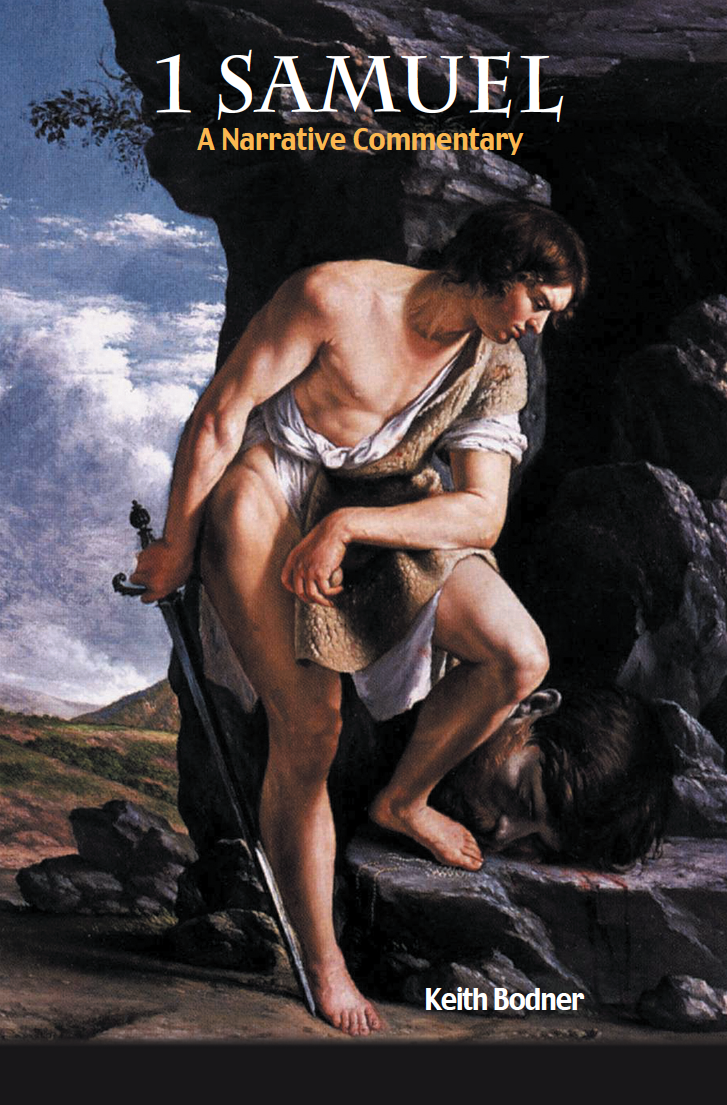
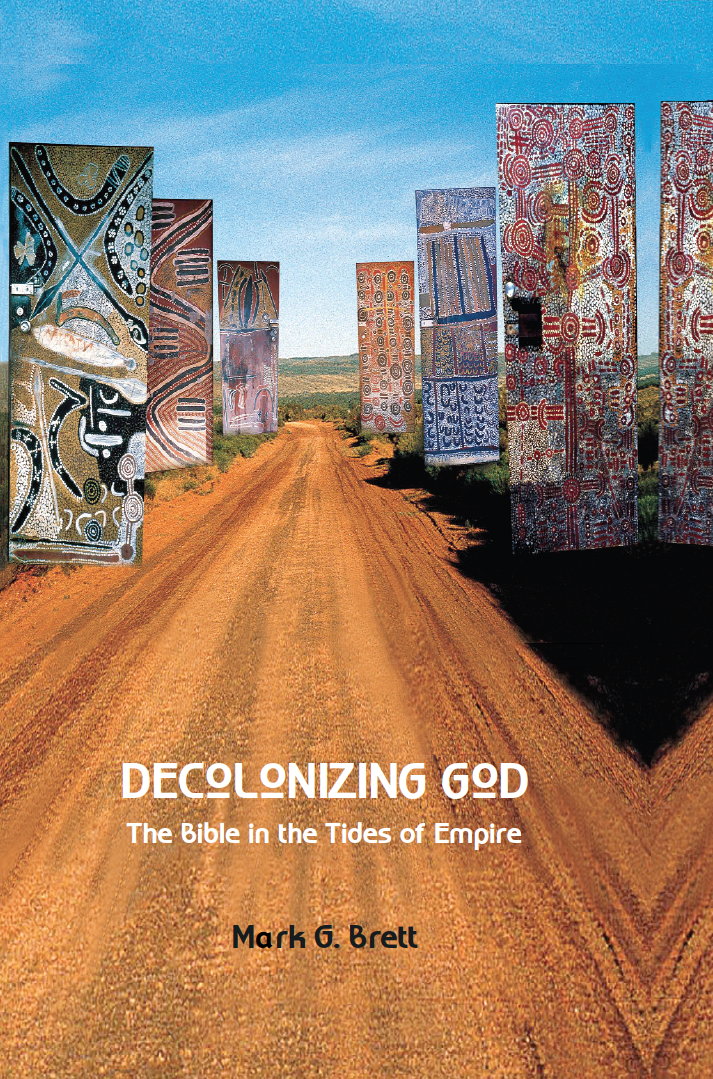

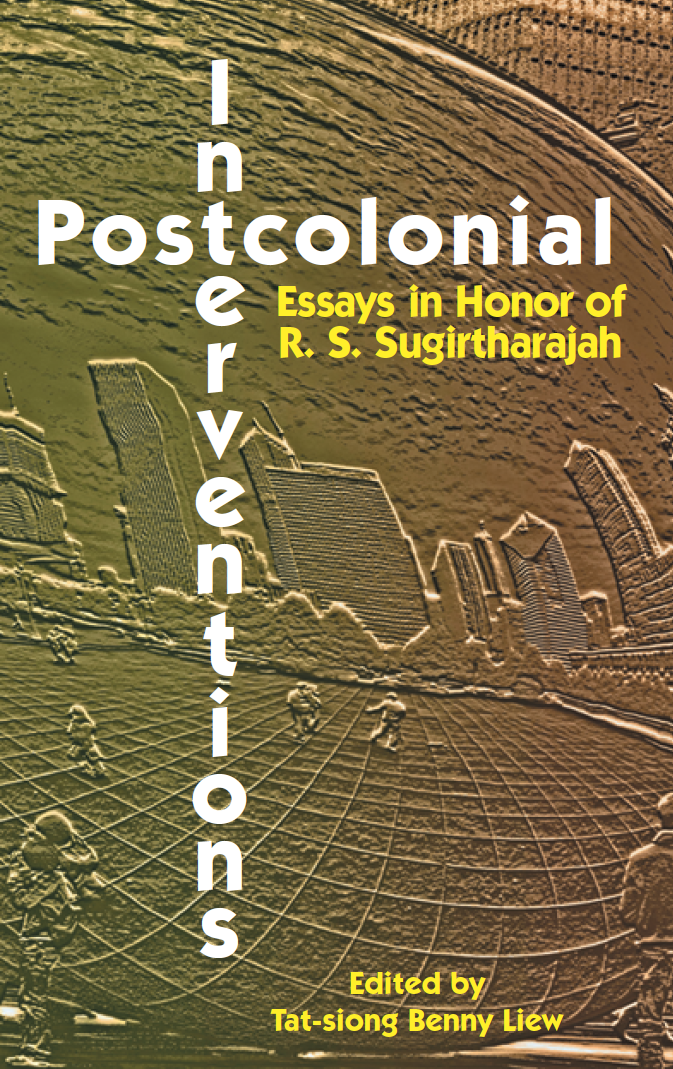
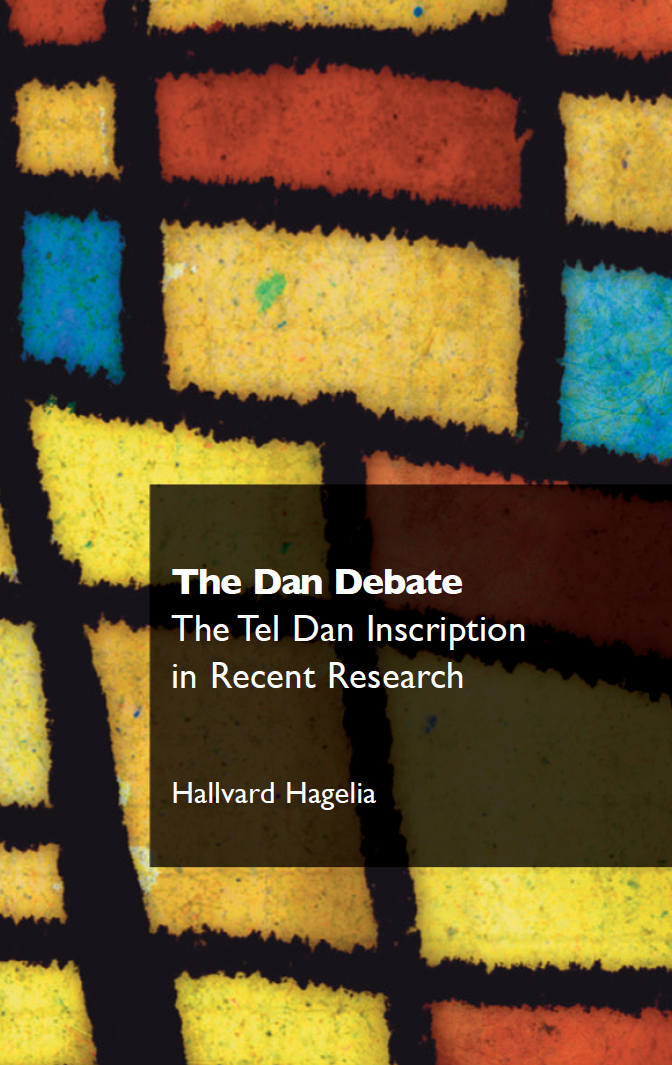
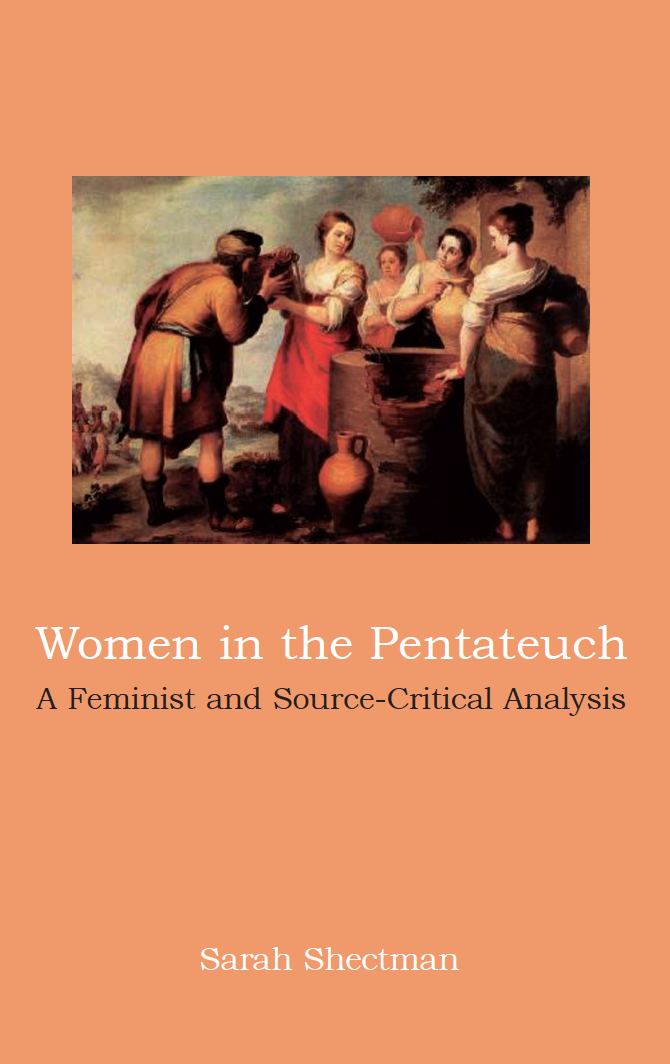
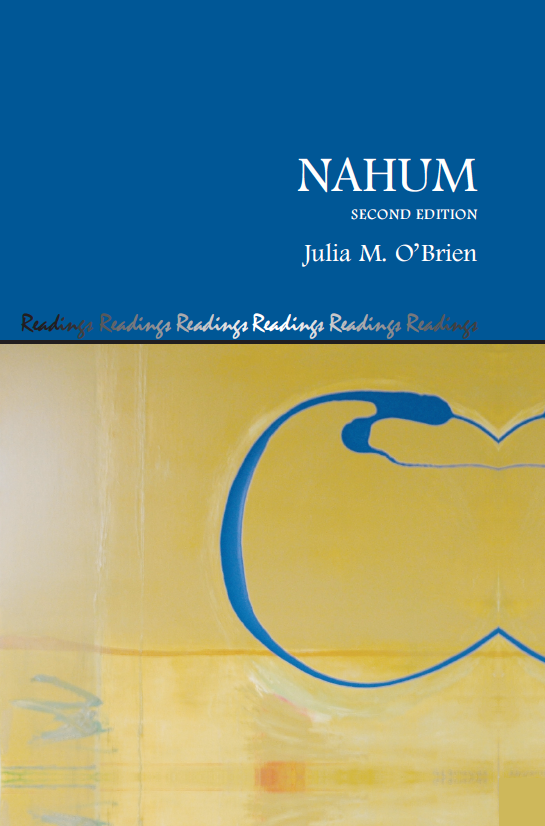


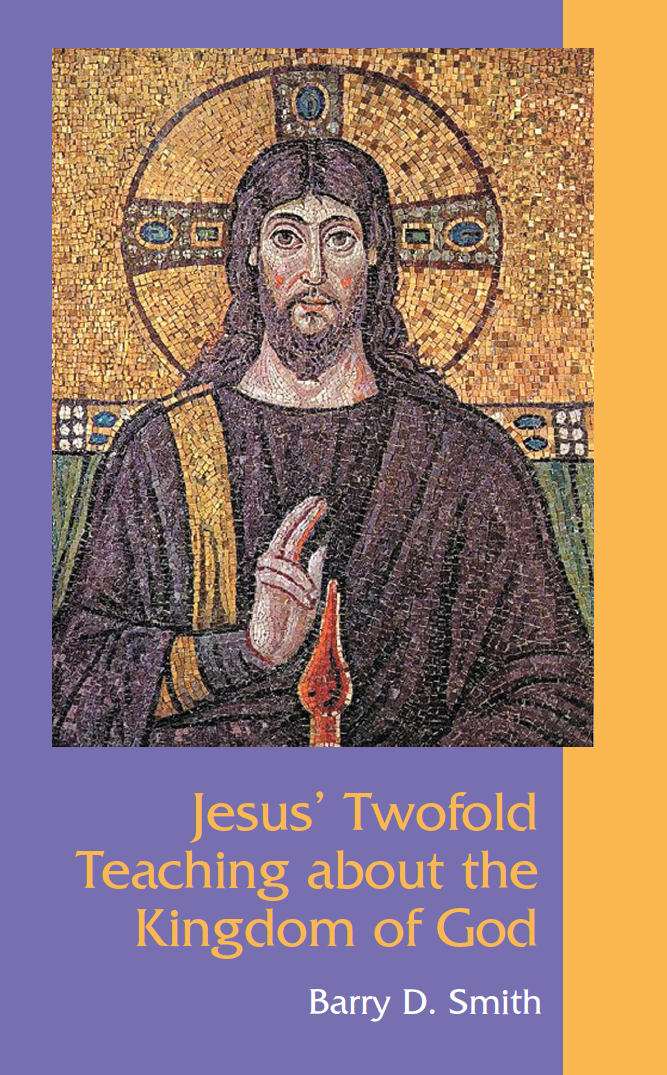

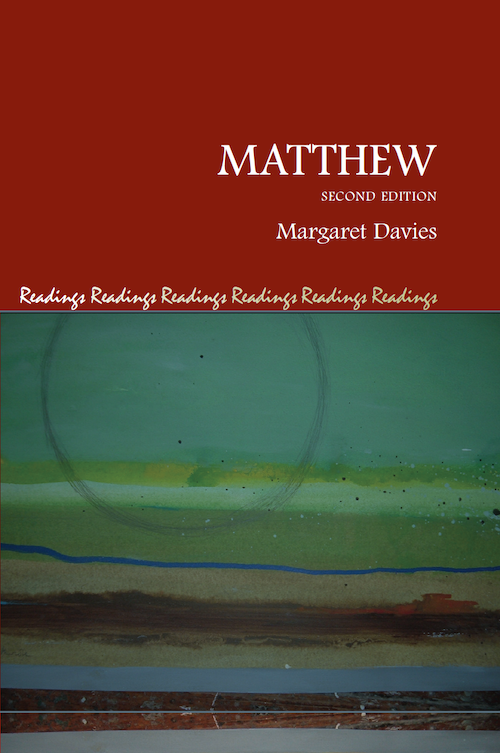

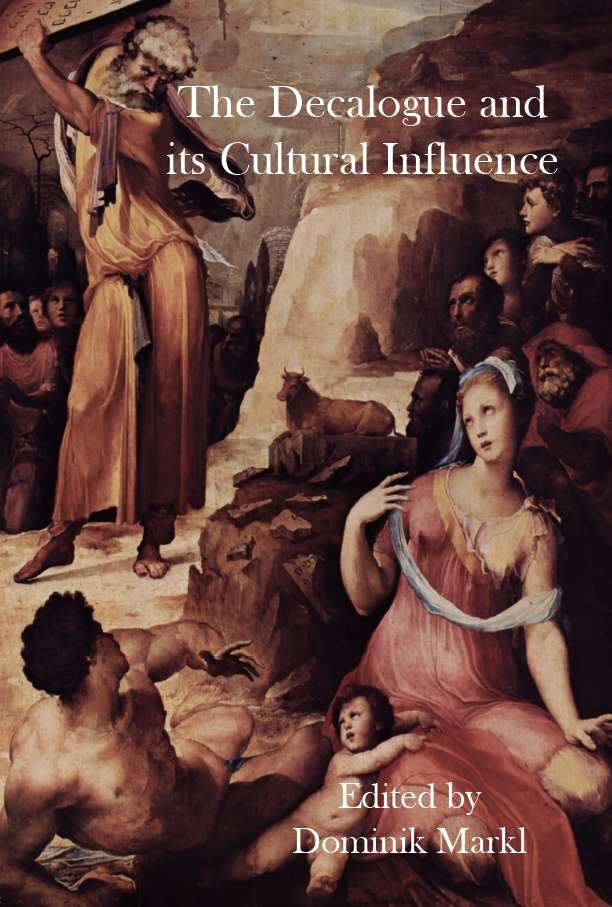
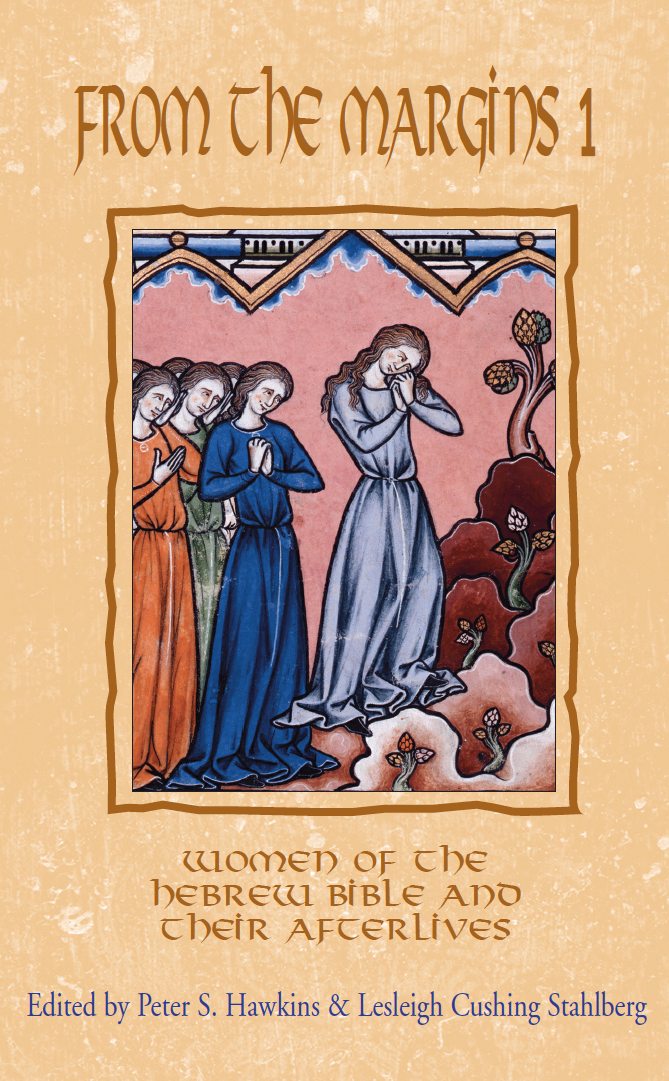
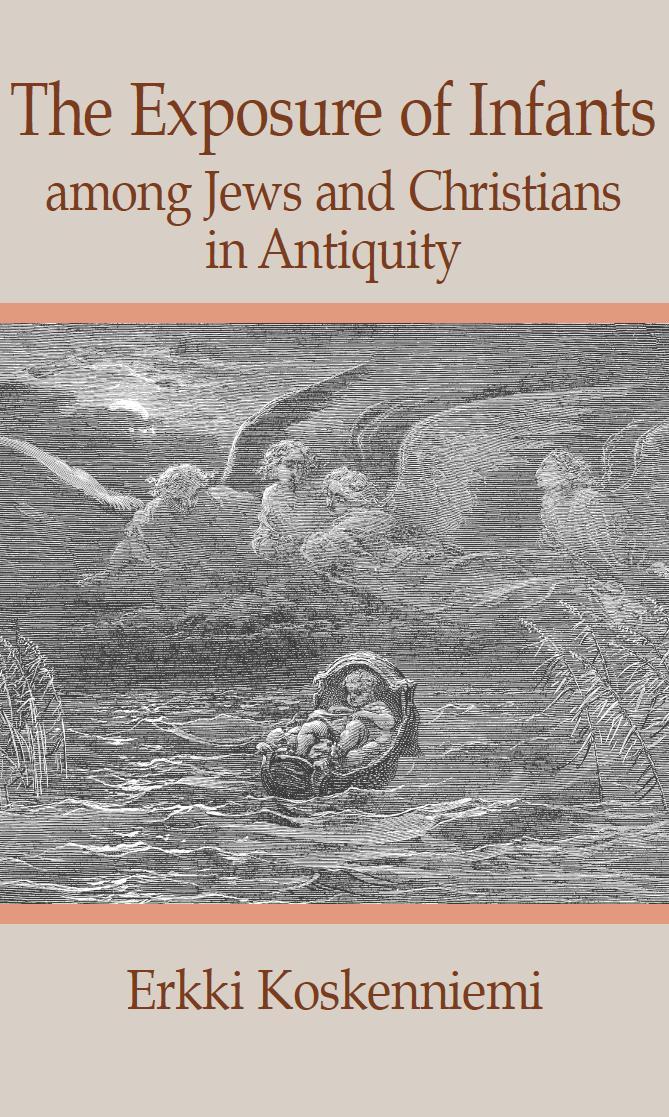





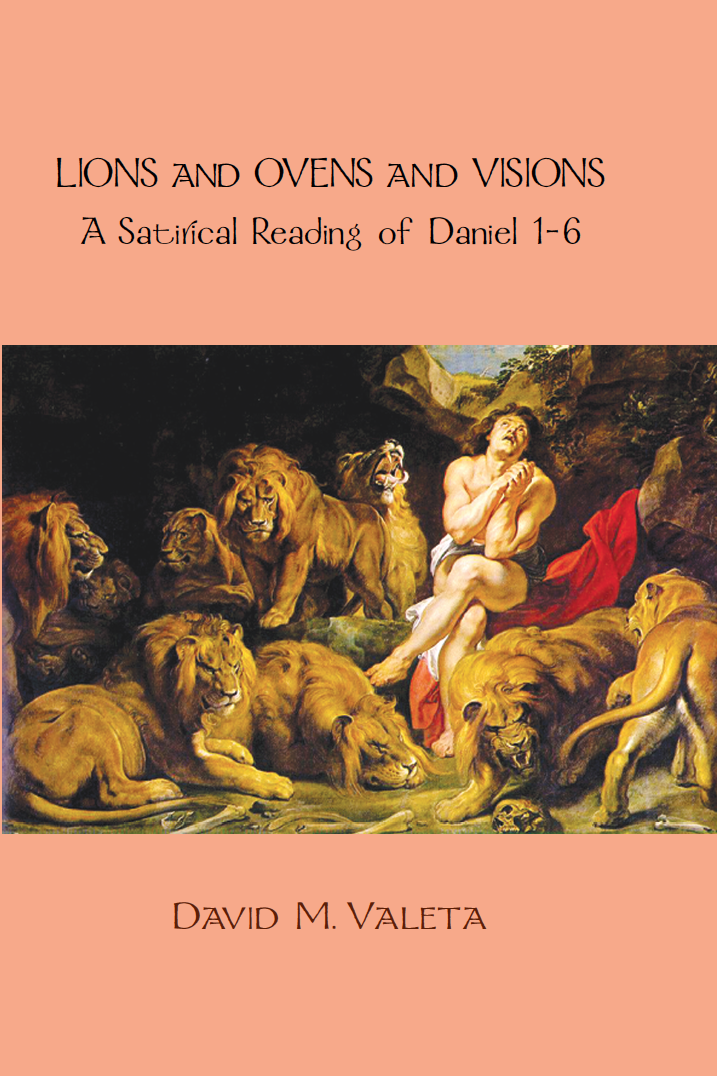

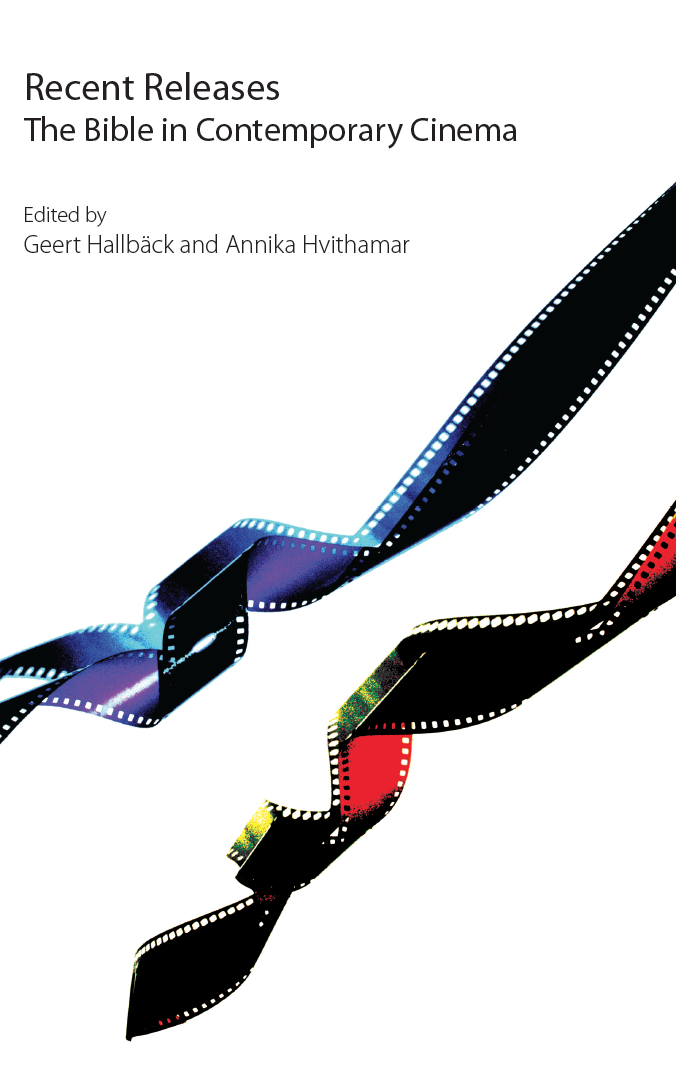
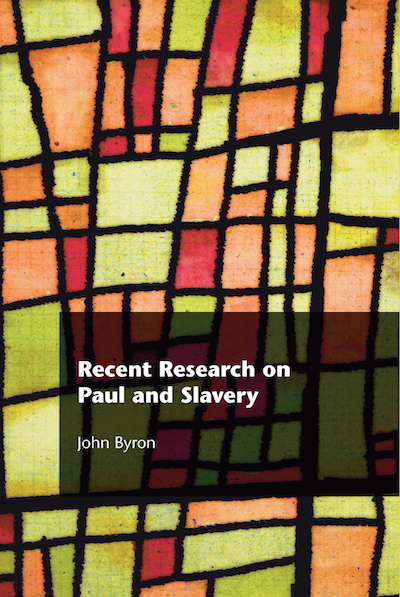
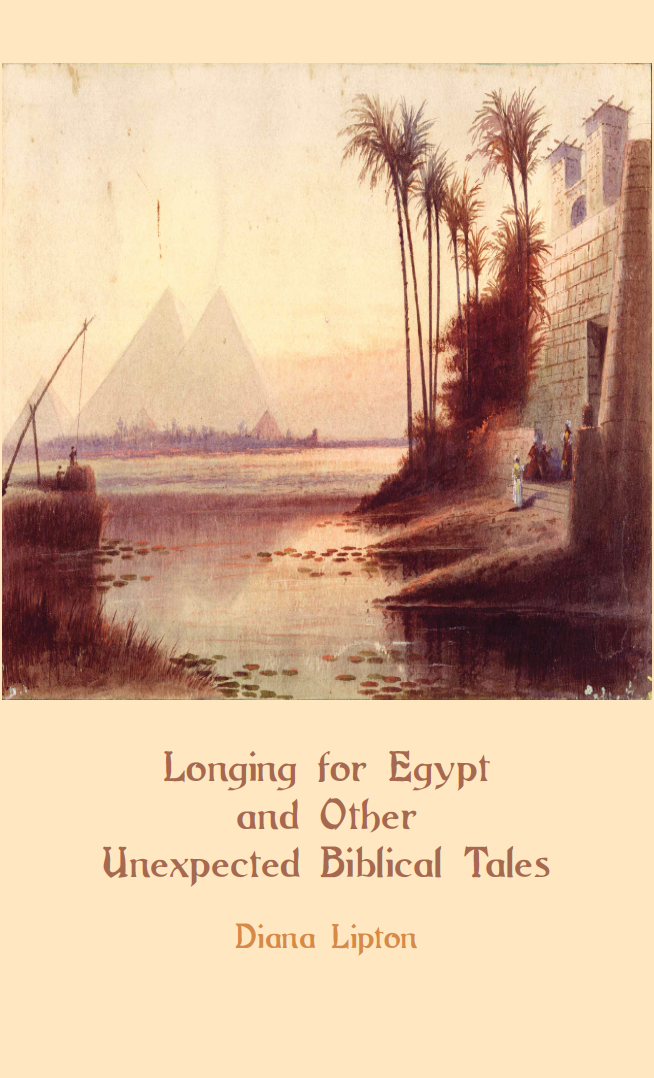

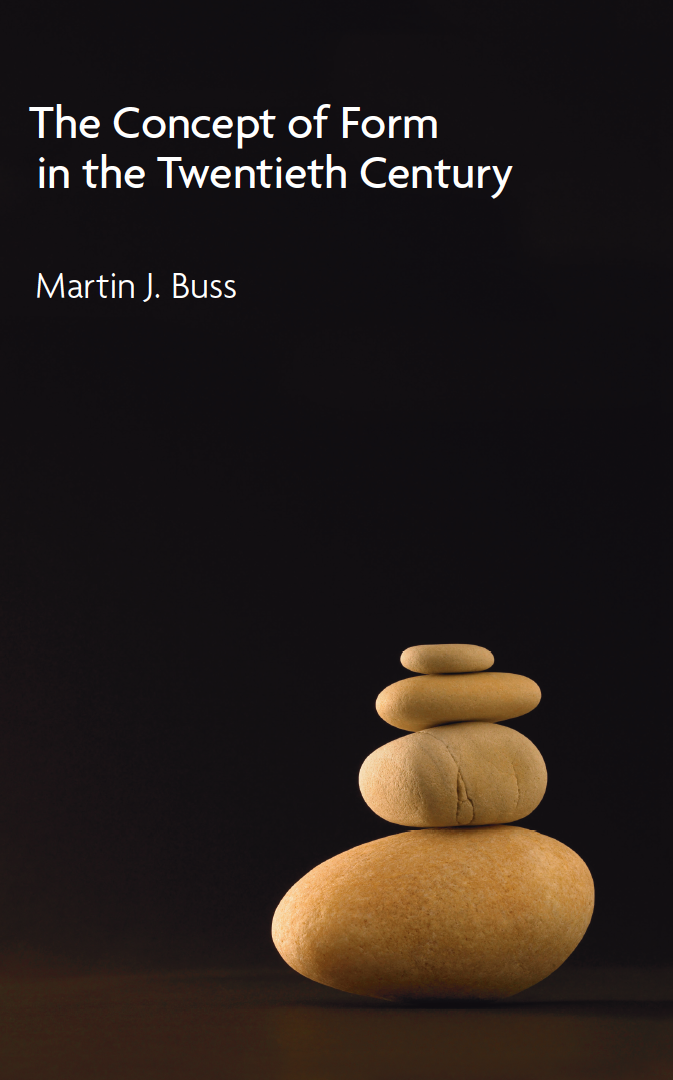
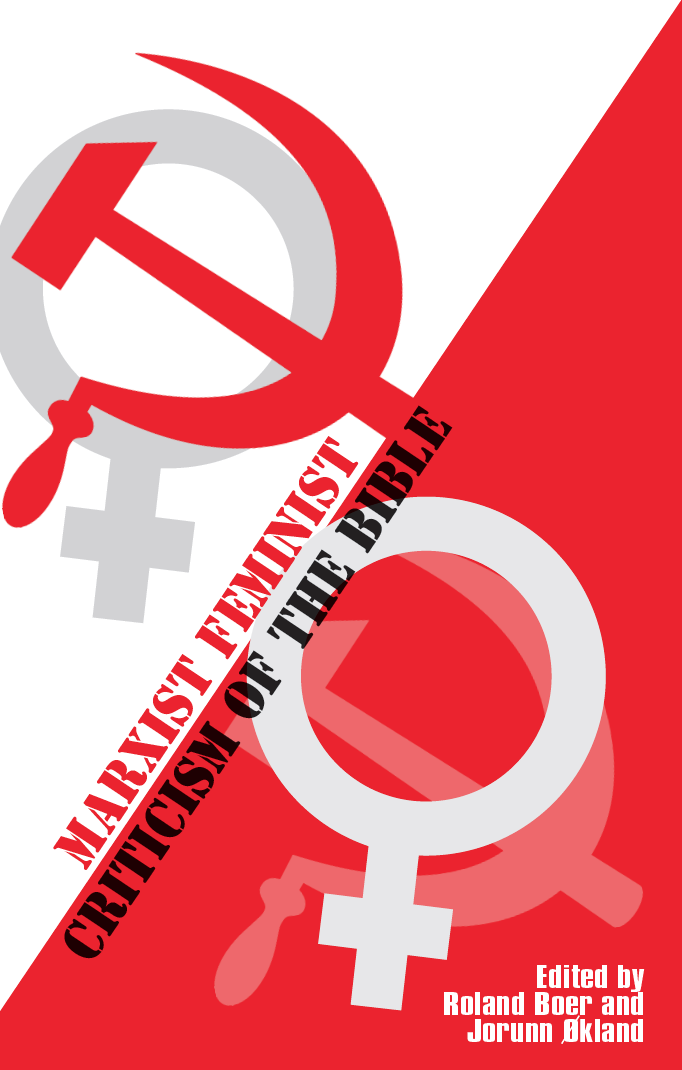

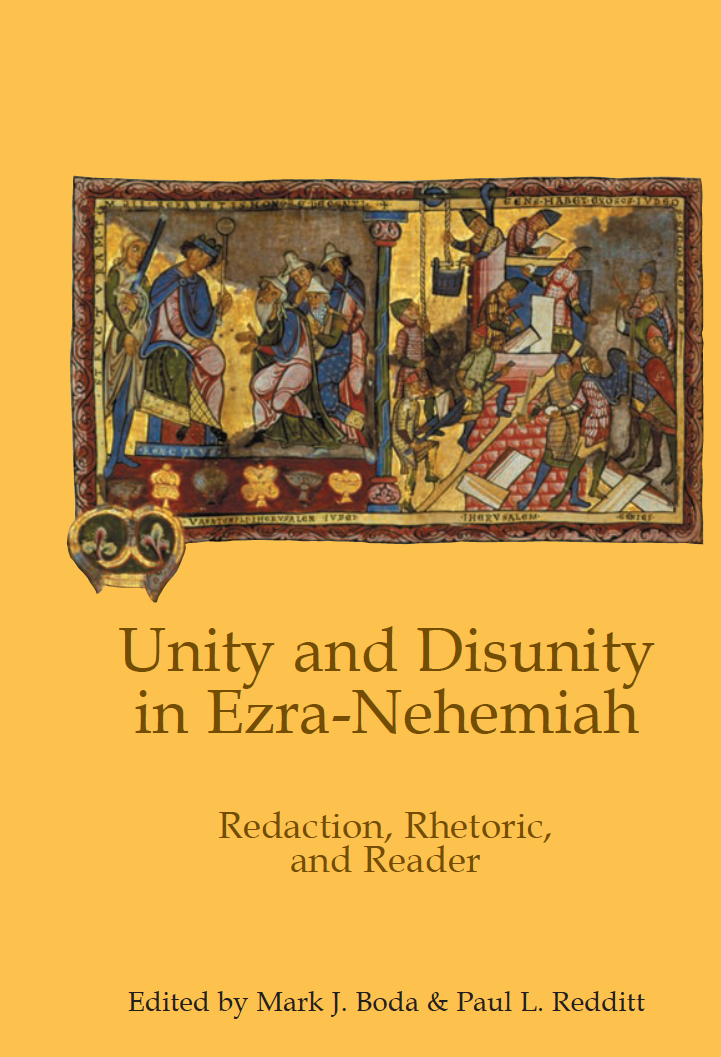
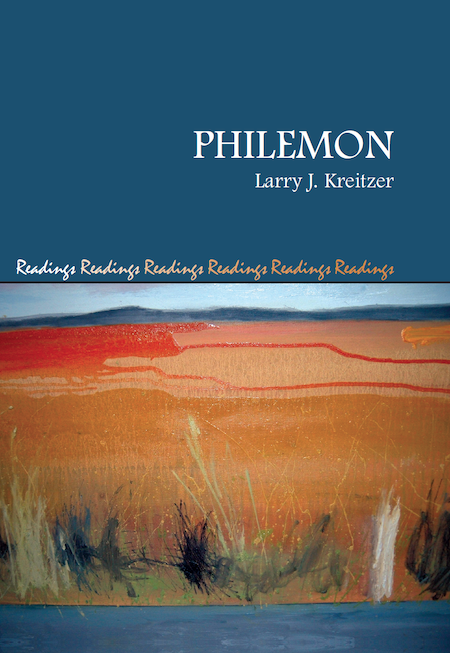
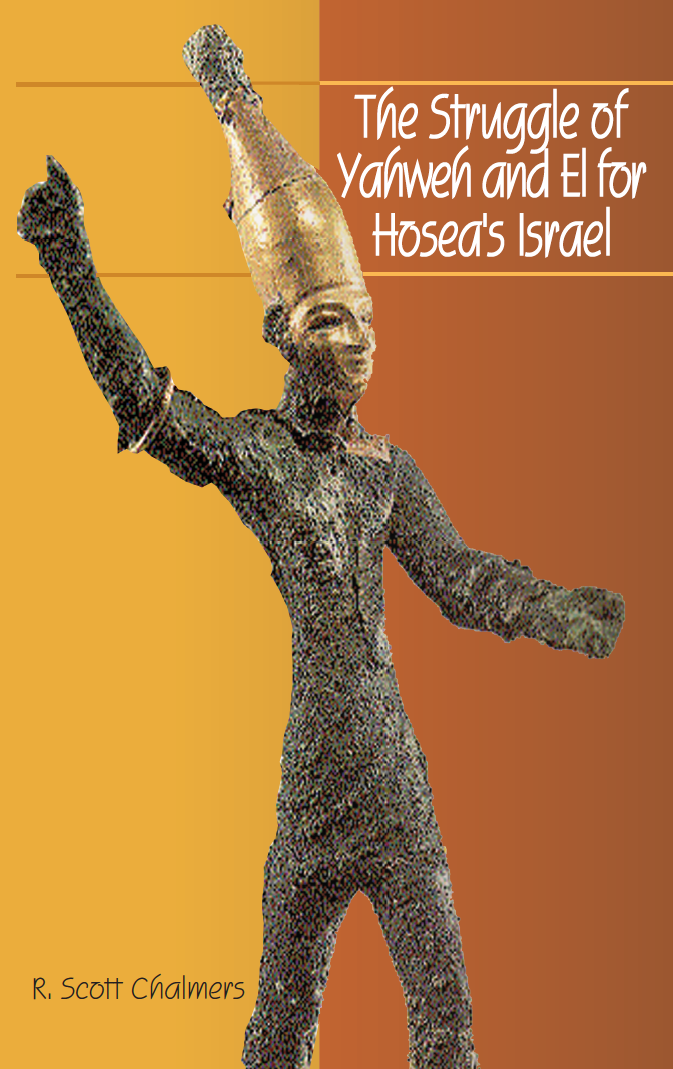

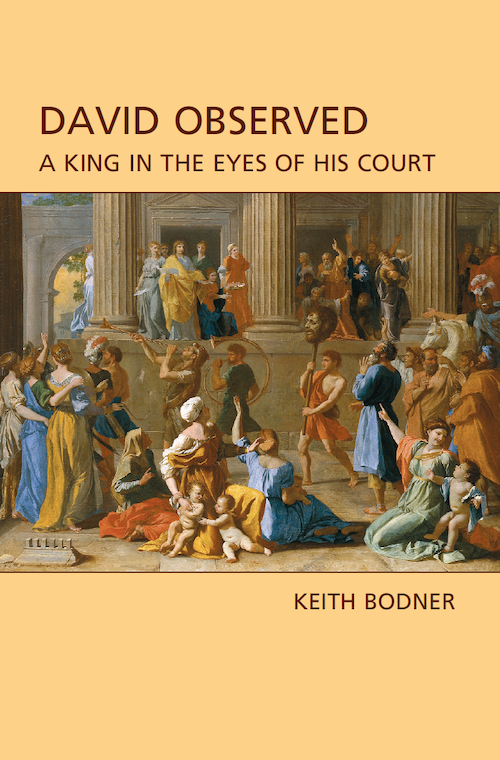
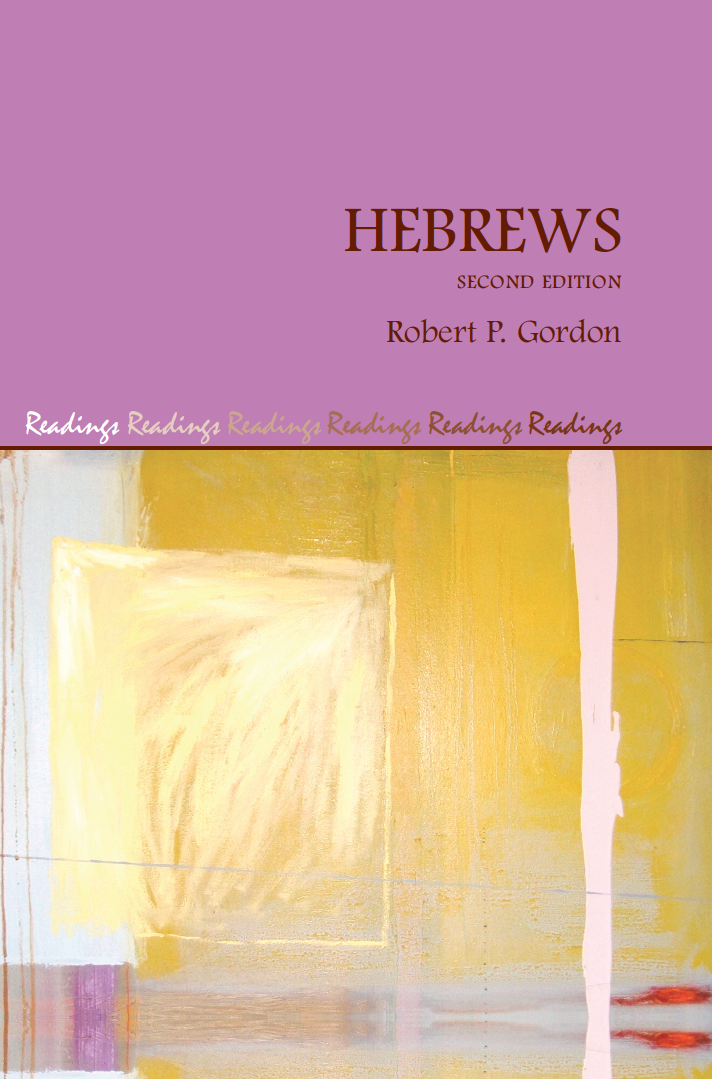
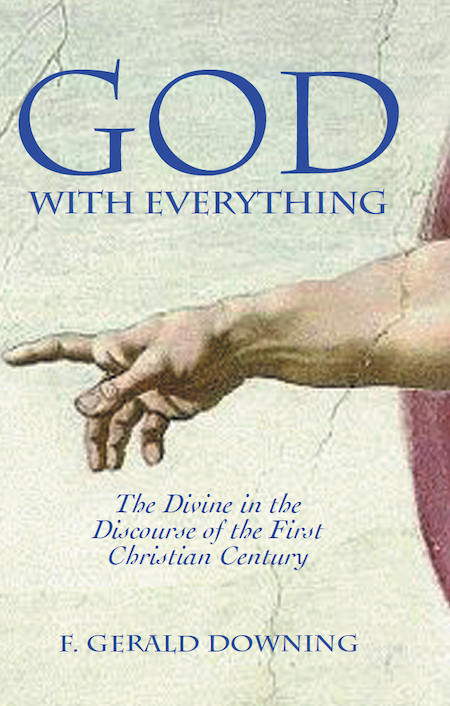
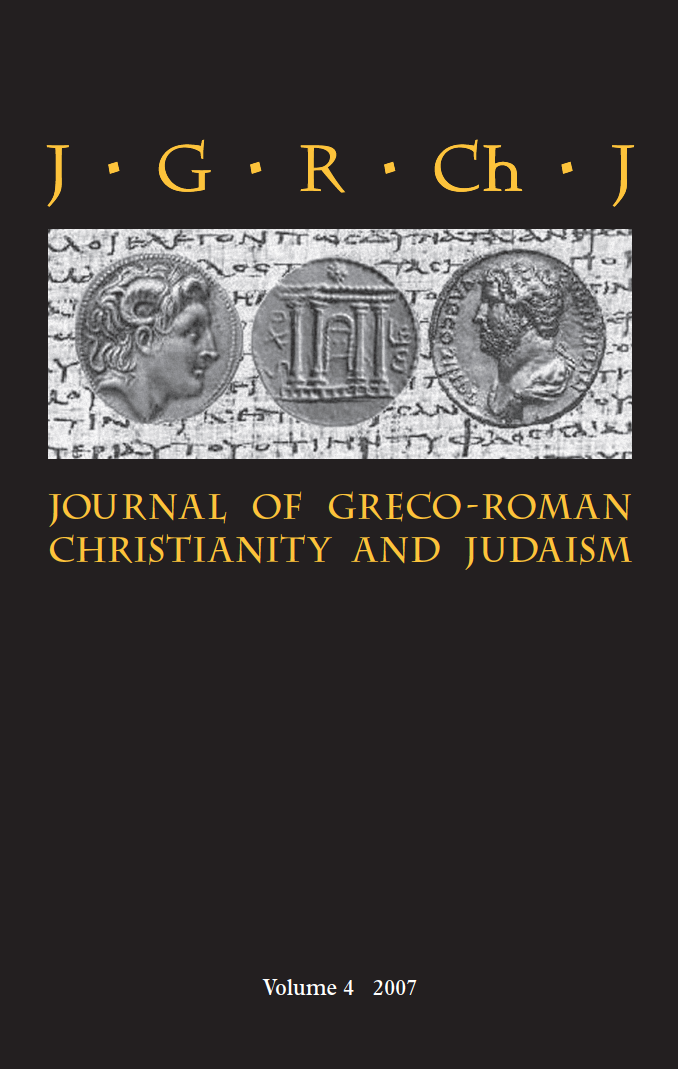
Genesis, Second Edition
Genesis, Second Edition